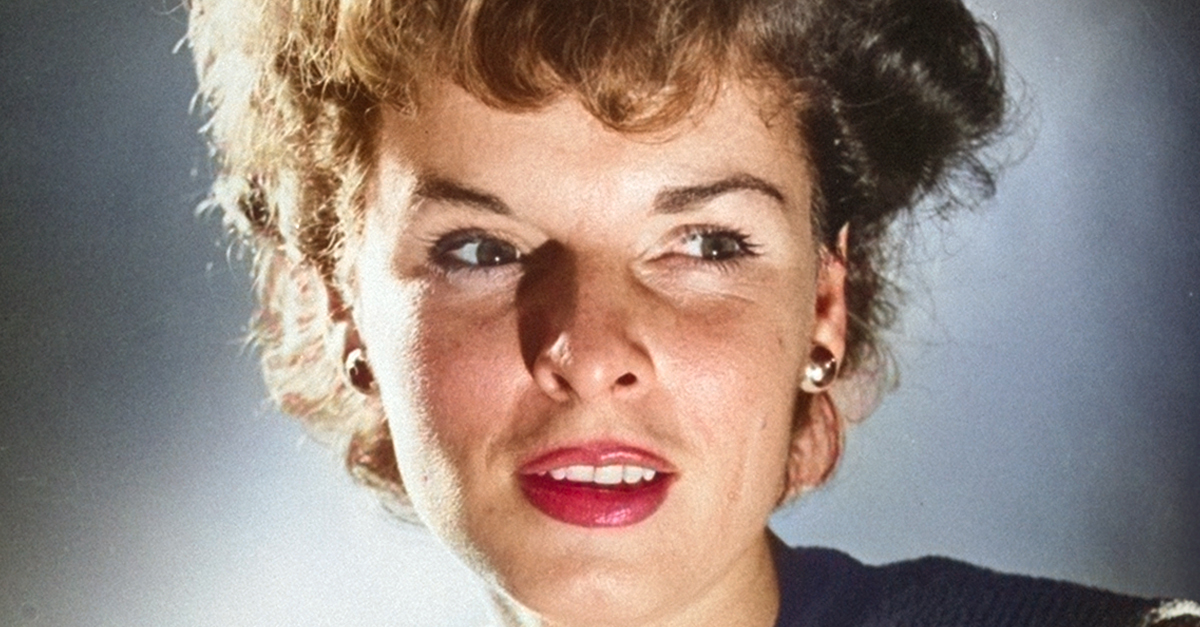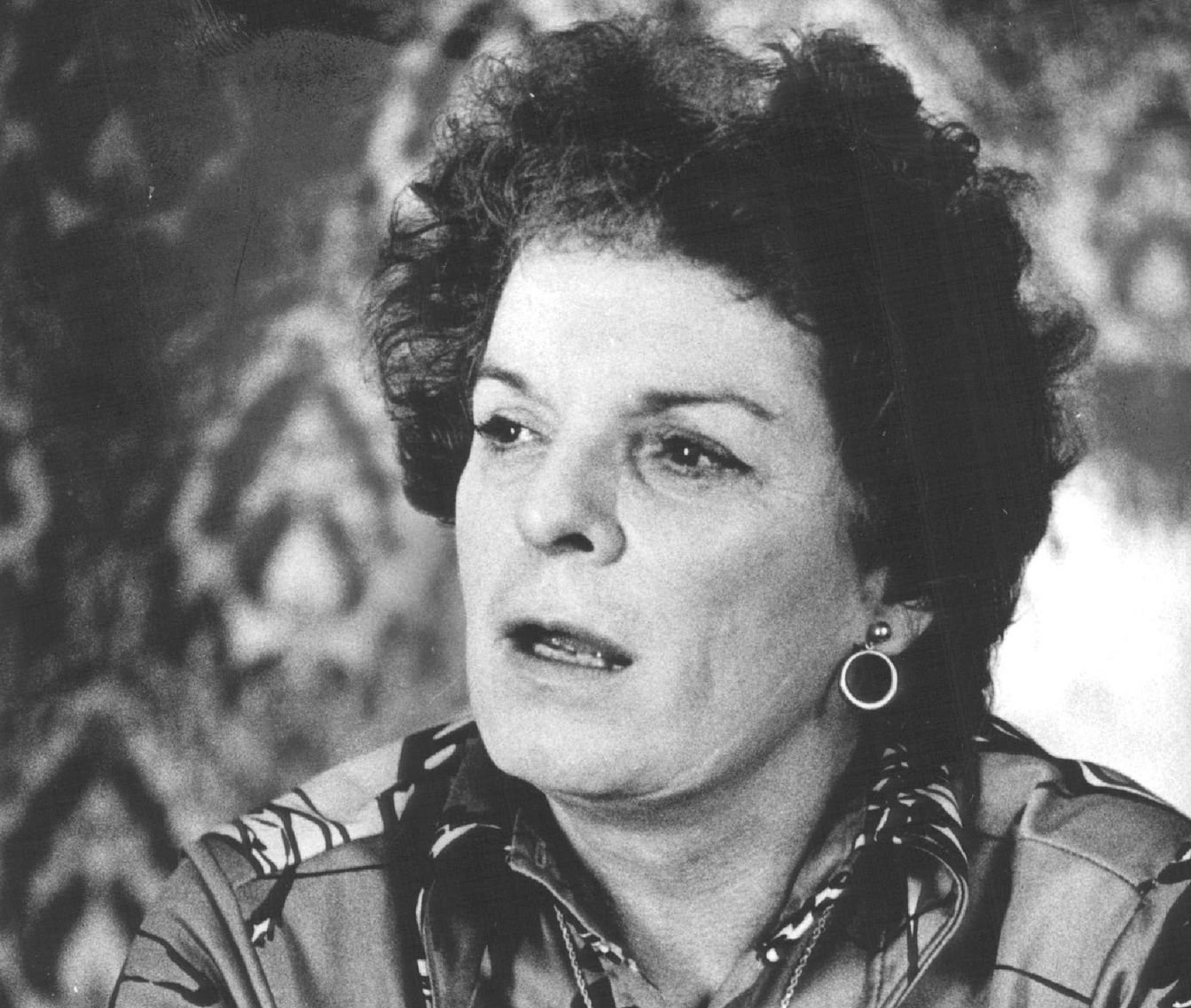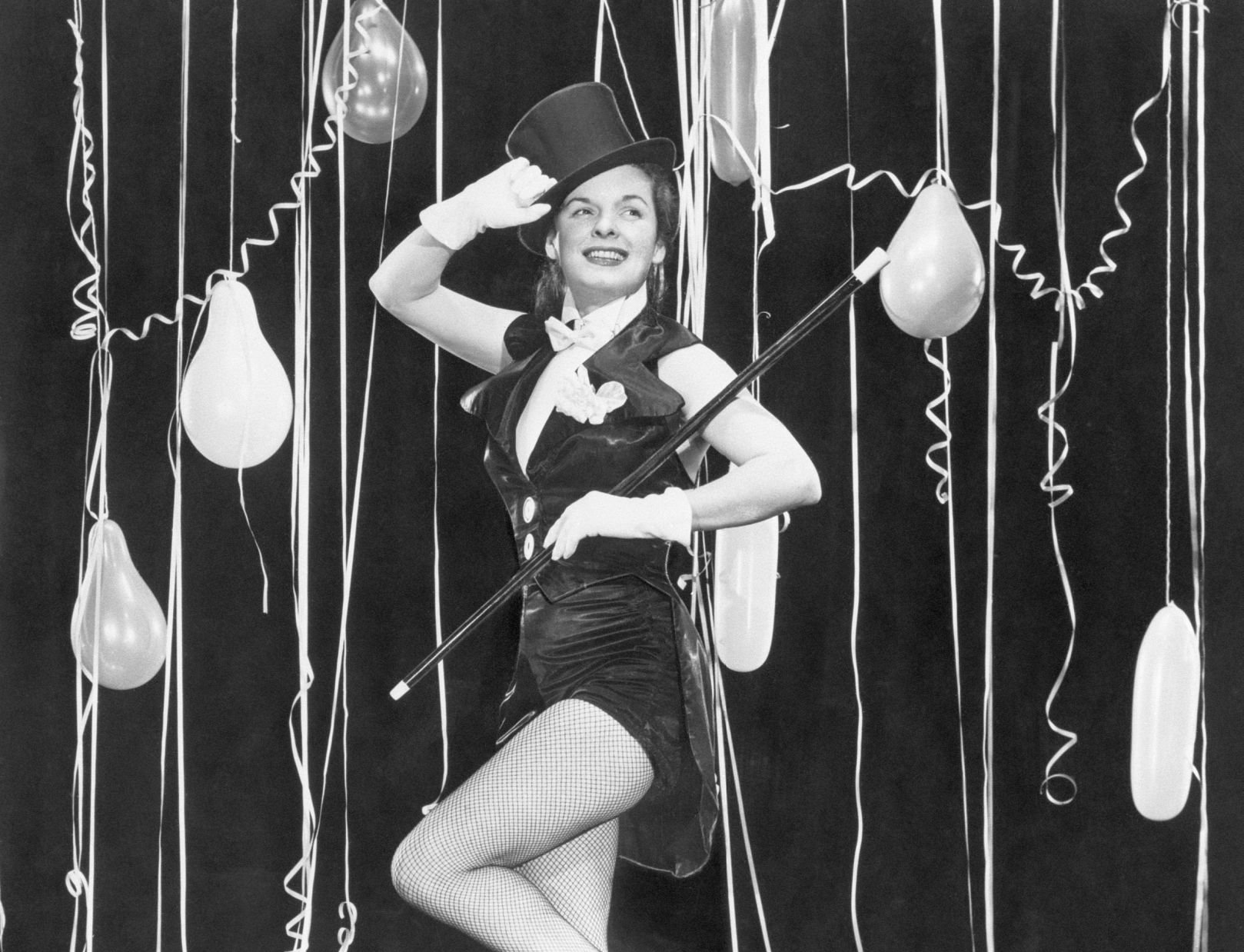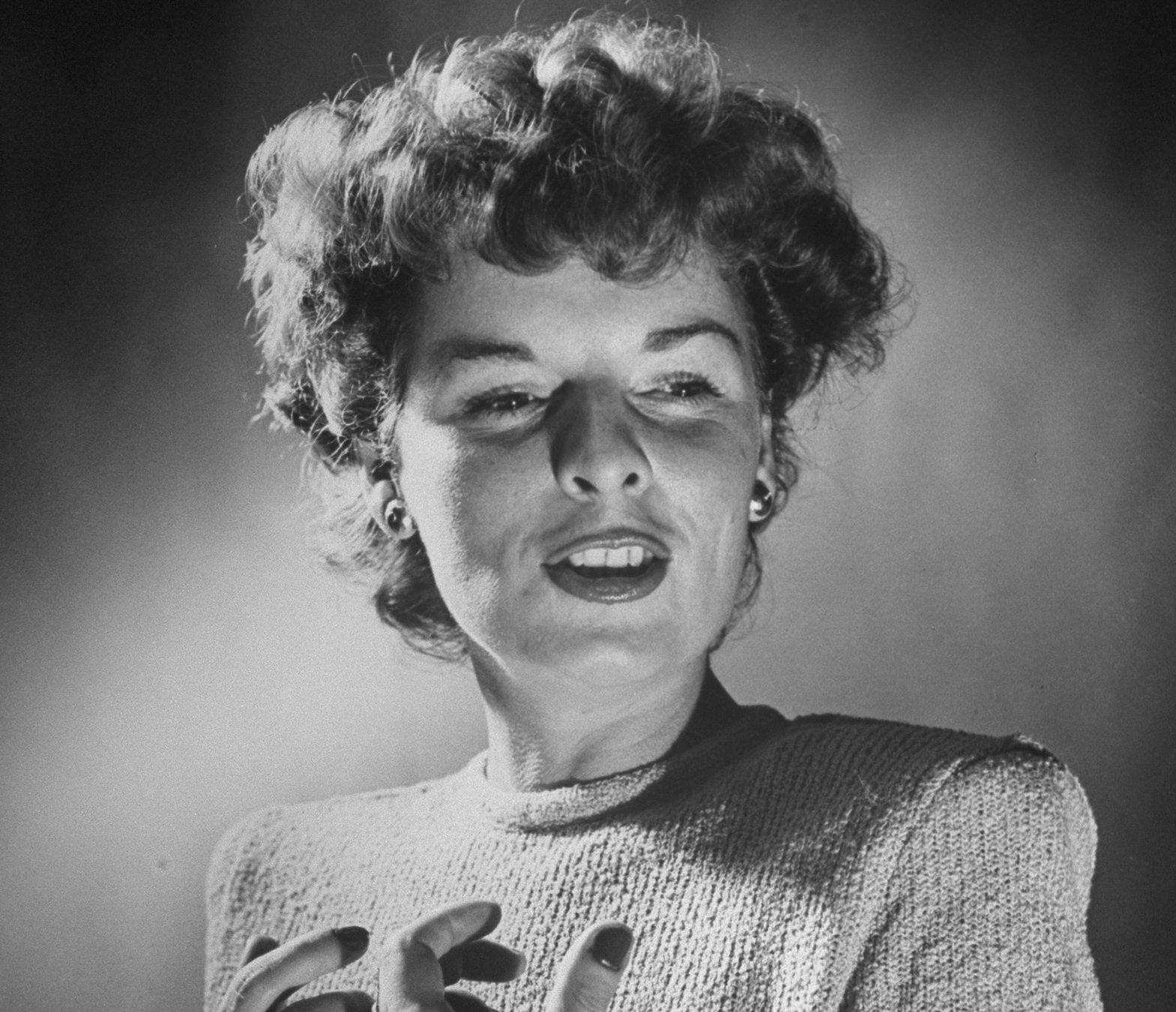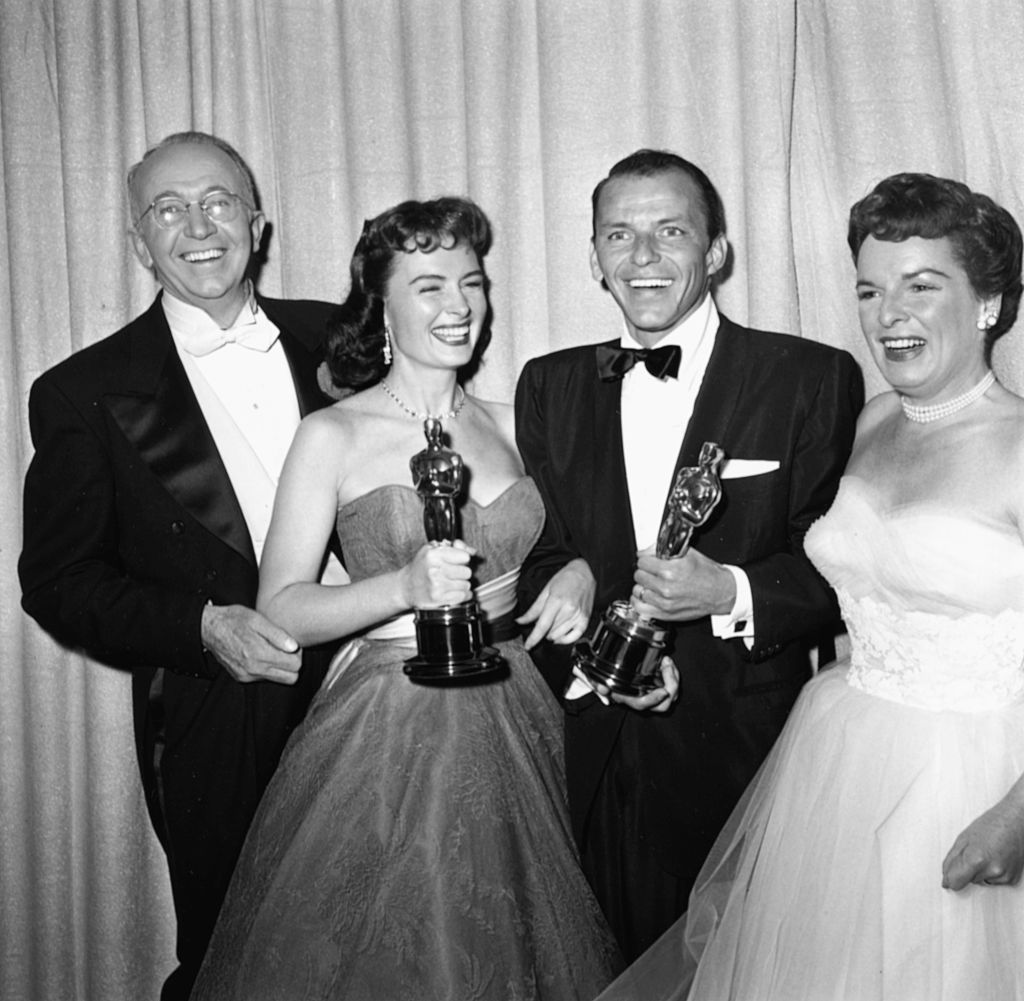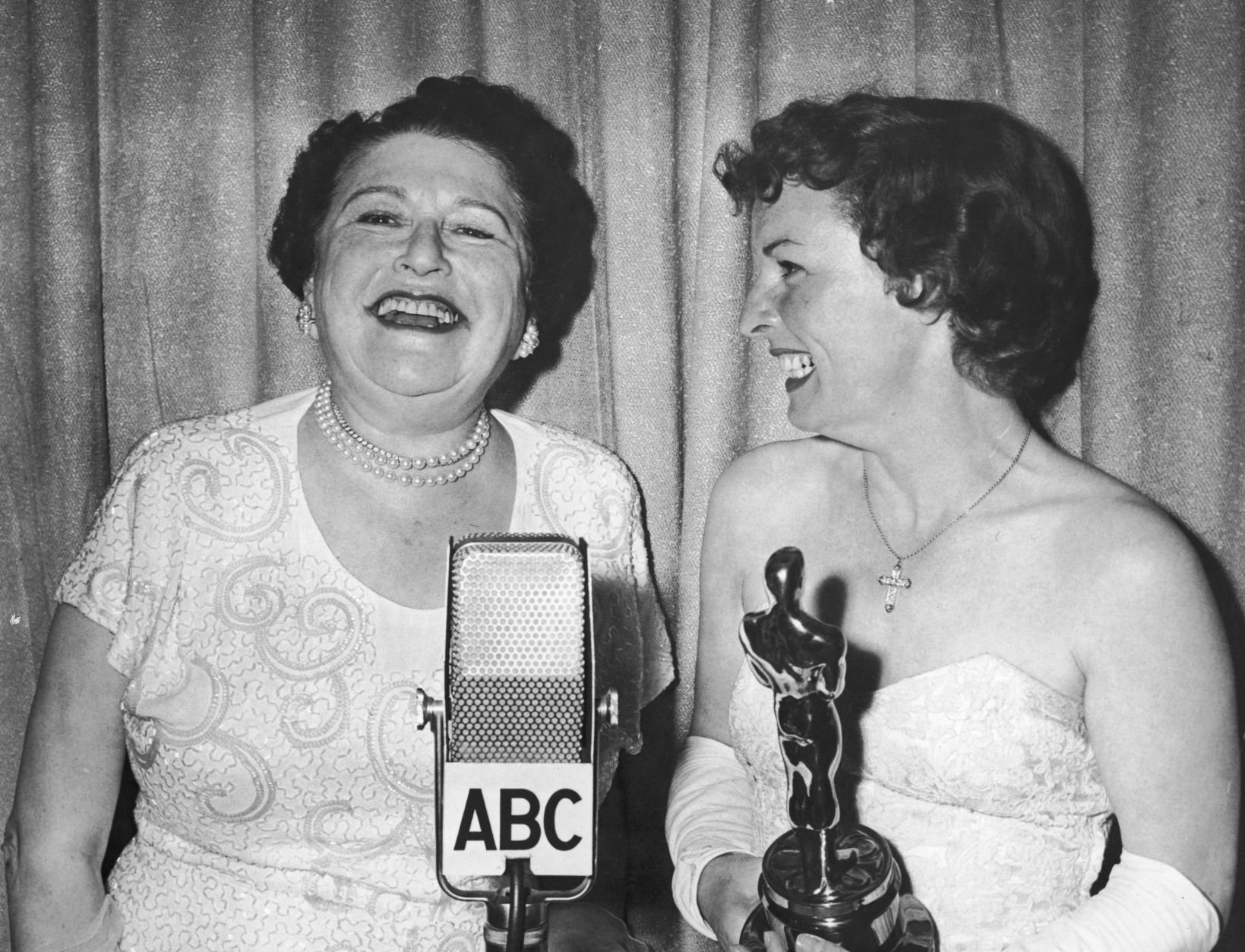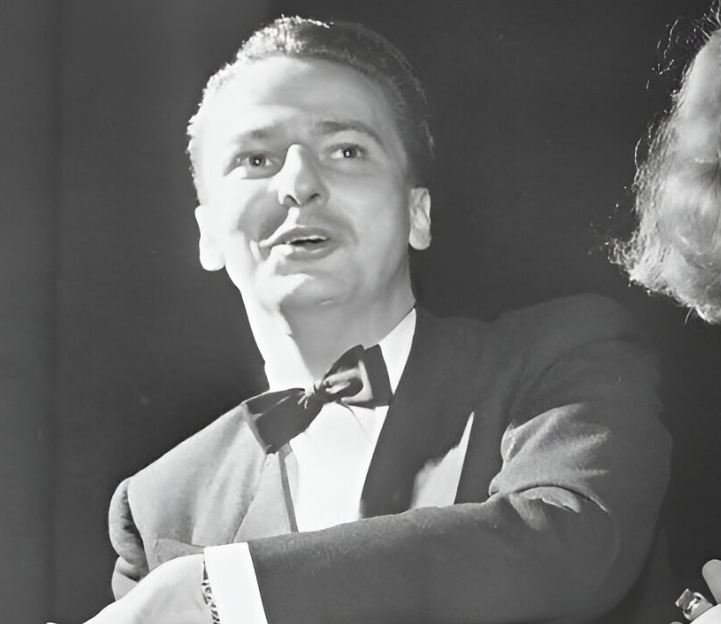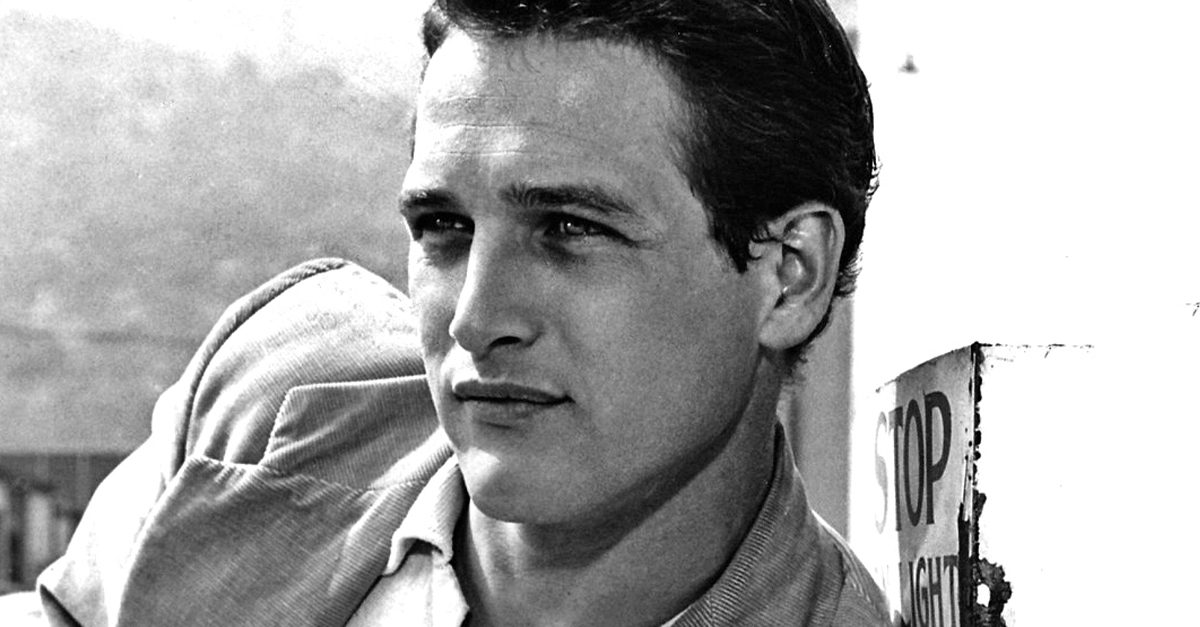The Voice Star Who Crossed Over
Mercedes McCambridge became the most acclaimed voice actor of her time before moving on to a successful Hollywood career. But while she looked back on a long life of improbable accomplishments, the unspeakable happened.
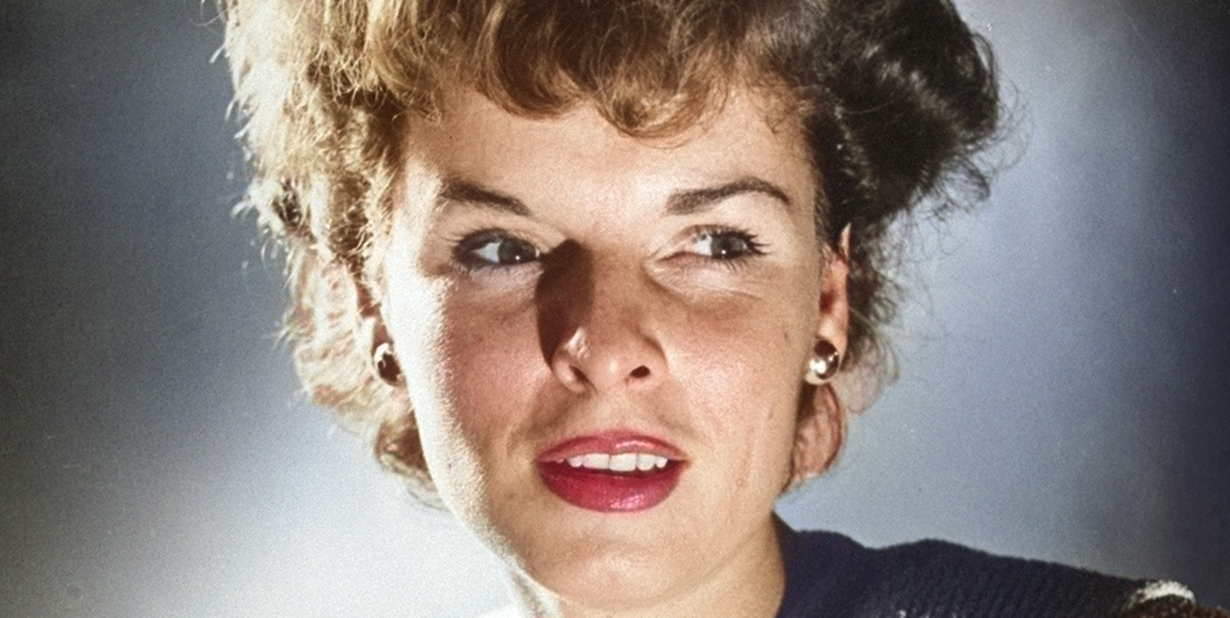
1. She Was An Irish Girl
Carlotta Mercedes Agnes McCambridge was born March 16, 1916 to John Patrick and Marie McCambridge in Joliet, Illinois. Born to Irish Catholic parents on the day before St Patrick’s Day, Mercedes strongly identified with her family’s ethnic roots. Her background strongly influenced her education as well.
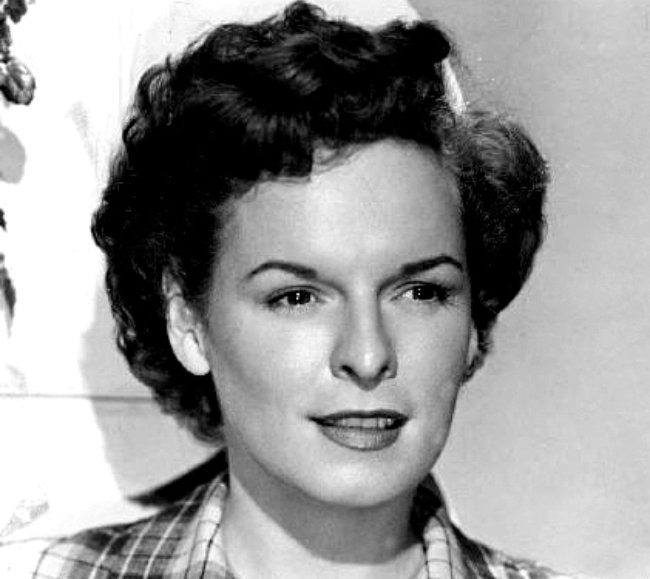 AP Wirephoto, Wikimedia Commons
AP Wirephoto, Wikimedia Commons
2. She Was A South Sider
Growing up in a middle-class farm family, Mercedes McCambridge had no doubt that she would go far with her education. She went to a high school run by Dominican sisters on the South Side of Chicago. After graduating, her teachers steered her into nearby Rosary College.
Rosary was okay, but Mercedes was really interested in a career in performance. She decided Mundelein College was the place to go.
3. She Met An Influential Figure
Mundelein College was a Catholic school with a great performing arts program, but they only took the best. Fortunately, McCambridge excelled in her entrance exam with the instructor, who would become a major influence on Mercedes’ future.
4. She Molded A Young Performer
Sister Mary Leona Oliver was one of Mundelein’s best—and most rigorous—teachers. Stressing the importance of diction and body movement, Oliver played a strong role in forming Mercedes into an outstanding actress.
But Oliver’s true panache came through in her direction of the Mundelein College Verse Speaking Choir—where McCambridge literally took center stage.
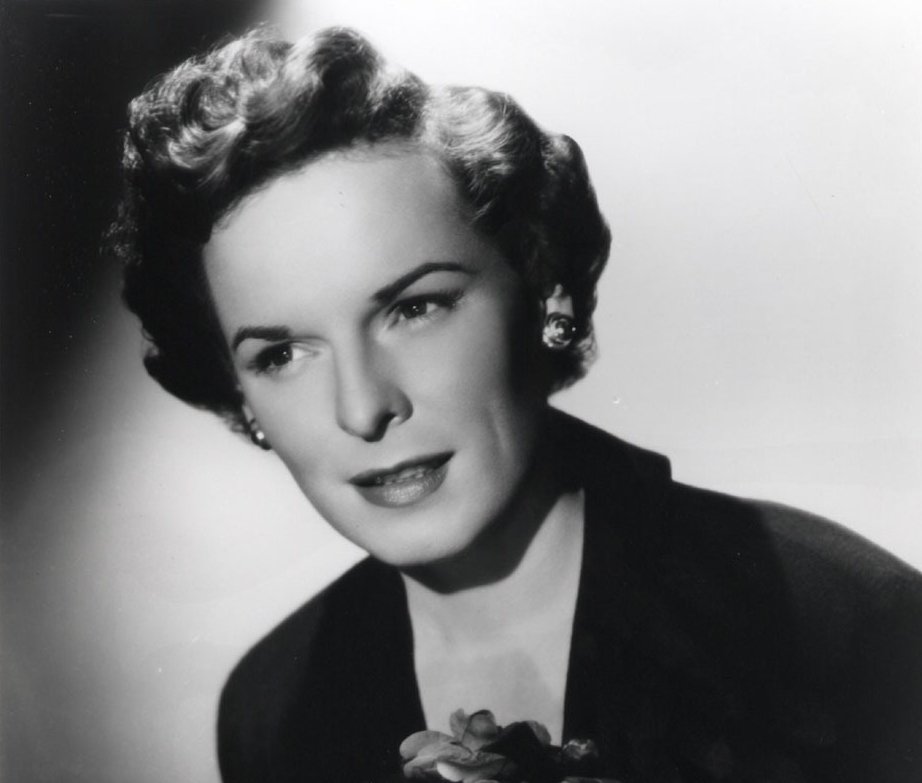 Unknown Artist, Wikimedia Commons
Unknown Artist, Wikimedia Commons
5. Her Voice Found A Wider Public
The speaking choir featured eight “dark” voices, eight “light” voices, and one soloist: McCambridge. Under Oliver’s direction the formidable ensemble attracted favorable reviews from the Chicago Daily News and the Chicago Tribune. The positive media coverage gained the notice of others in the Chicago area.
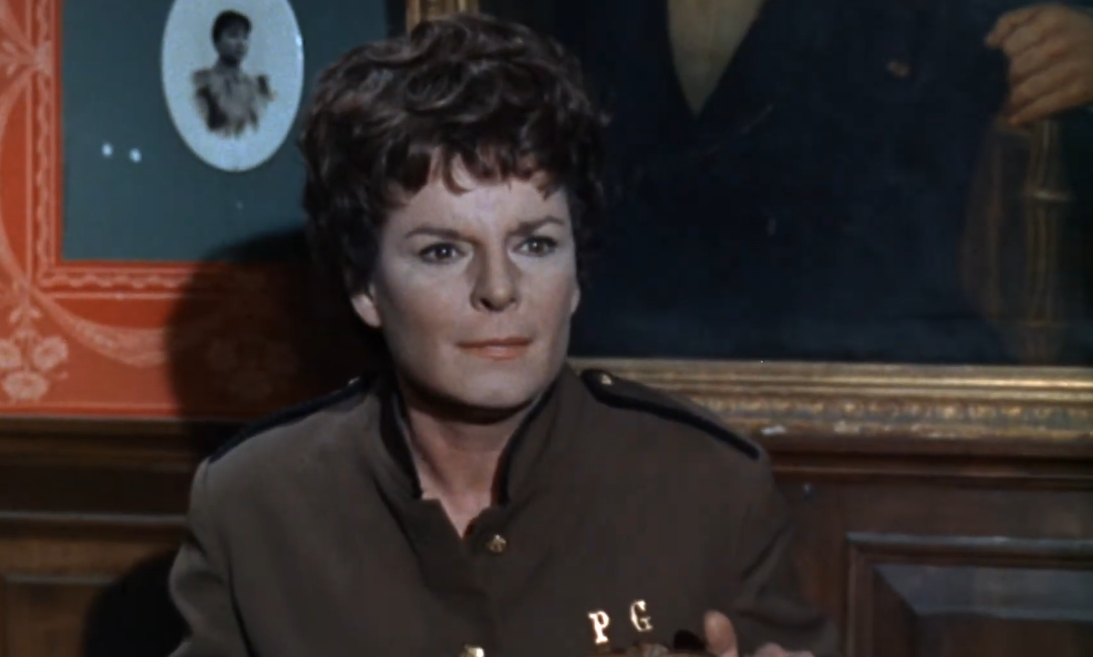 Corona Filmproduktion, 99 Women (1969)
Corona Filmproduktion, 99 Women (1969)
6. She Got Her First Contract
The choir was invited to NBC Studios to perform one of their poems for radio broadcast. The network was so impressed they signed the choir to a one-year contract with the Chicago Symphony Orchestra. But there was more. NBC also offered McCambridge herself a five-year performance contract.
Signing on the dotted line, McCambridge realized that all her hard work with Sister Mary Oliver had paid off.
7. Radio Days
Working with NBC soon brought Mercedes McCambridge under the influence of the network’s Chicago program director Sidney Strotz. Strotz was struck by the range and grit of the young McCambridge’s voice. He quickly assigned her to regular roles on several daytime radio soap operas.
Under Strotz’s guidance, the young voice actress was off and running.
8. She Got Entangled Off Set
Strotz was a mentor to McCambridge—but that wasn’t all. The two ended up getting involved romantically. But as the pair’s relationship eventually fizzled out, McCambridge developed a new romantic connection with studio co-star and writer William Fifield.
The couple were soon married. Riding a wave of success, the pair set their sights on Hollywood.
 Republic Pictures, Johnny Guitar (1954)
Republic Pictures, Johnny Guitar (1954)

History's most fascinating stories and darkest secrets, delivered to your inbox daily.
9. She Was A Hollywood Radio Star
While Mercedes McCambridge had been successful in Chicago, the move to Southern California brought her voice acting career into overdrive. She became a staple performer on the radio adventure series I Love A Mystery. McCambridge was gaining industry connections and some serious voice acting chops. She had also become a mom.
10. She Had A Son
John Lawrence Fifield was born on December 25, 1941. With a new son, married to a talented writer, and enjoying a growing career, everything seemed to be going better than she could have asked for. But the lure of a new role would soon draw her away from her happy home life.
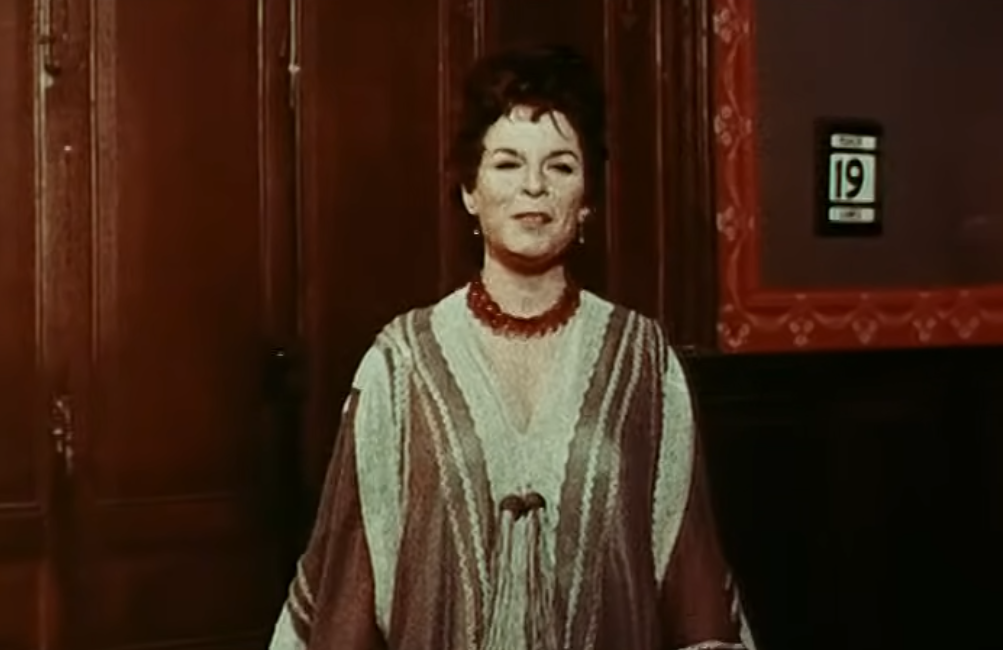 Corona Filmproduktion, 99 Women (1969)
Corona Filmproduktion, 99 Women (1969)
11. She Went To New York
Accepting a role in the radio adaptation of the Broadway hit Abie’s Irish Rose, McCambridge moved to New York in 1942 with her son. While the move meant her career was looking up, her marriage was heading for the rocks. William Fifield had declared himself a conscientious objector, refusing to be drafted as the nation entered WWII.
In these uncertain times, McCambridge met a new friend.
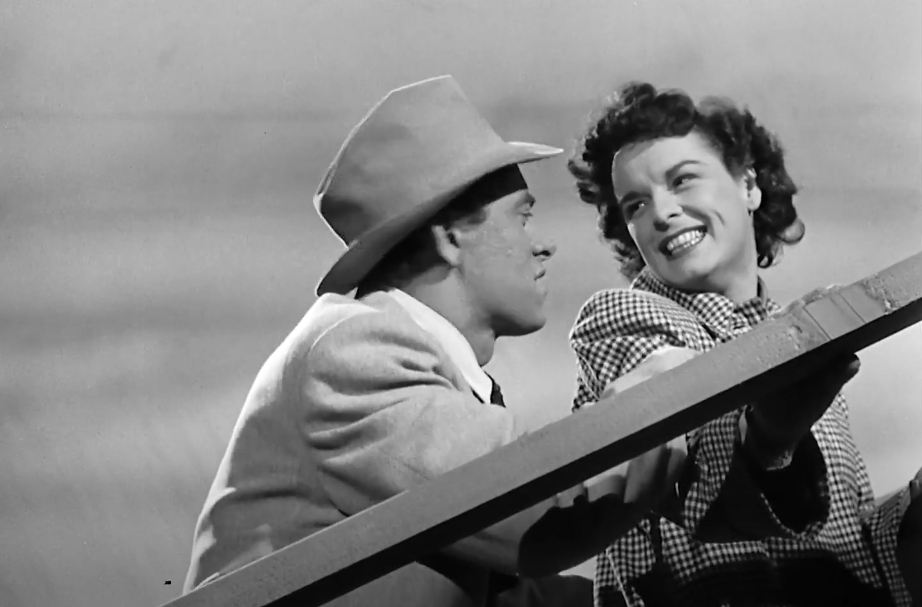 Columbia, All the King's Men (1949)
Columbia, All the King's Men (1949)
12. She Met A Radio Legend
Mercedes McCambridge soon met Orson Welles. The larger-than-life radio producer and director of Citizen Kane (1941) took an instant liking to McCambridge. Welles recognized her talent and hired her for regular work on his radio shows. With growing confidence in her abilities, McCambridge started to branch out into another field.
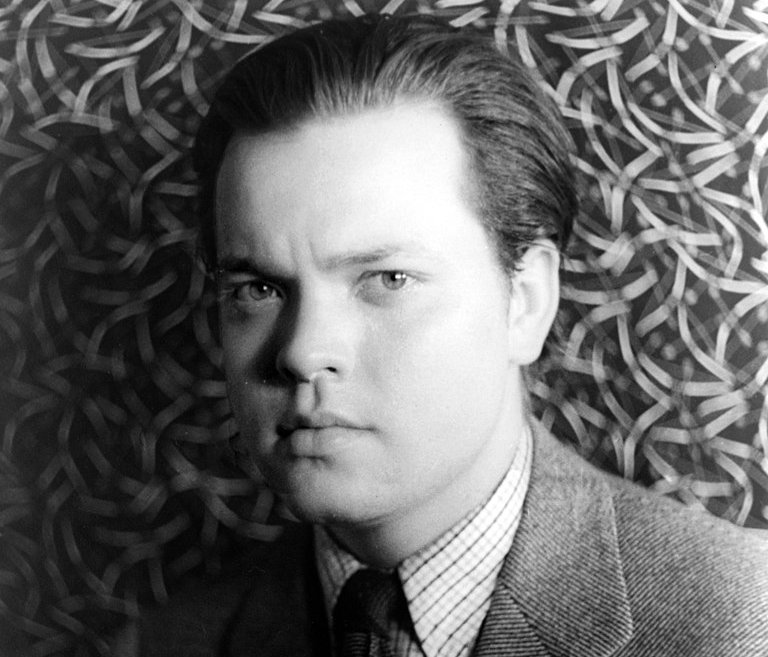 Carl Van Vechten, Wikimedia Commons
Carl Van Vechten, Wikimedia Commons
13. She Started A Broadway Career
McCambridge landed a role in a couple of Broadway productions in the mid-40s. Though the plays sank without a trace, she did gain visibility with Hollywood acting scouts who noted her considerable talents. The good news was McCambridge was no longer siloed away in radio. The bad news was her marriage was doomed.
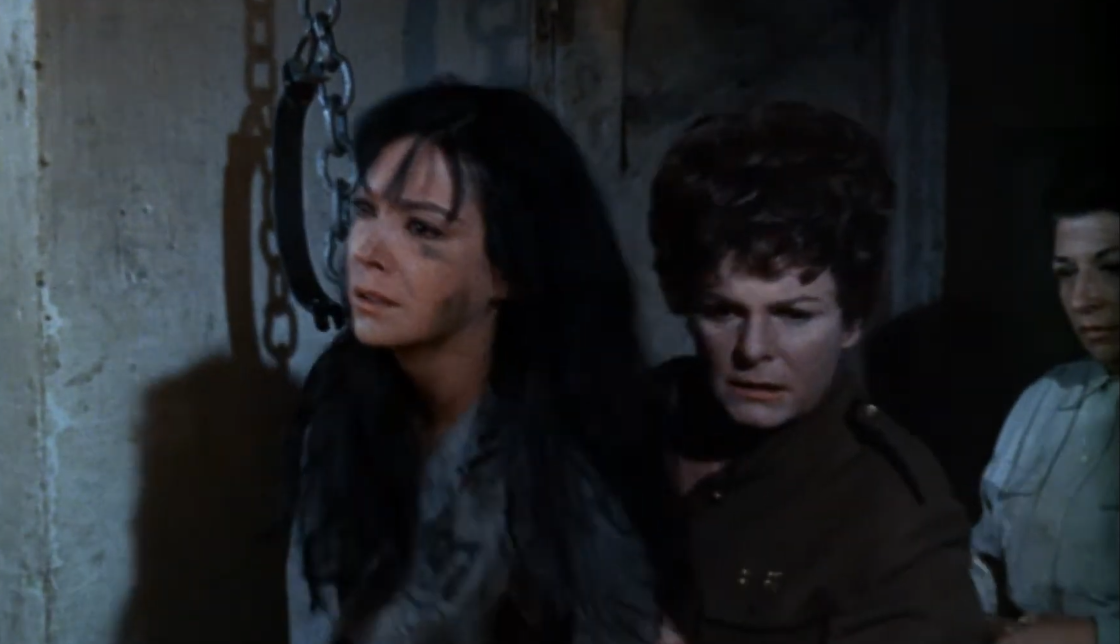 Corona Filmproduktion, 99 Women (1969)
Corona Filmproduktion, 99 Women (1969)
14. They Fell Apart
Mercedes McCambridge and Fifield had by now spent three years apart from each other. Fifield had spent the years of WWII living in Civilian Public Service camps and writing fiction. The couple no longer knew each other, and divorced that year. All of a sudden, McCambridge’s clear path to success now seemed out of reach.
McCambridge was a single mom with a pair of unsuccessful Broadway shows on her resume. With television soon to replace radio as the dominant form of home entertainment, she faced an uncertain future.
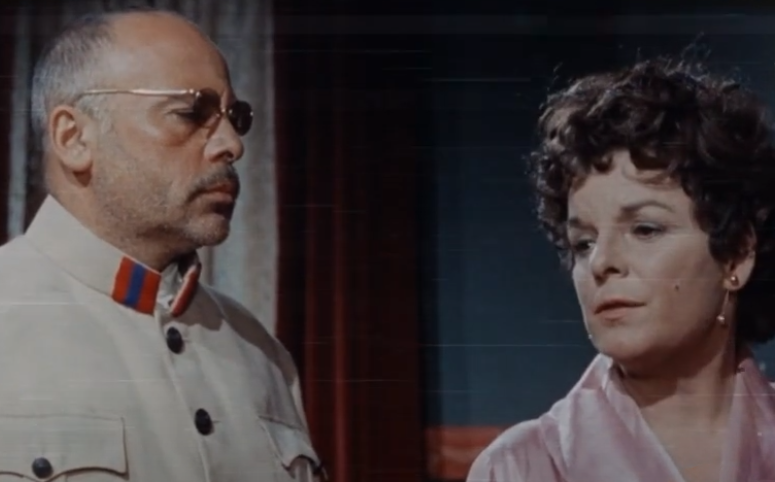 Corona Filmproduktion, 99 Women (1969)
Corona Filmproduktion, 99 Women (1969)
15. She Hit The Road
With the world coming out of the darkness of WWII, McCambridge thought it was the perfect time to do some travelling. With five-year-old John by her side she went on a tour of the Caribbean and Europe. But as she enjoyed the waters of the Mediterranean, a new problem became noticeable in her life.
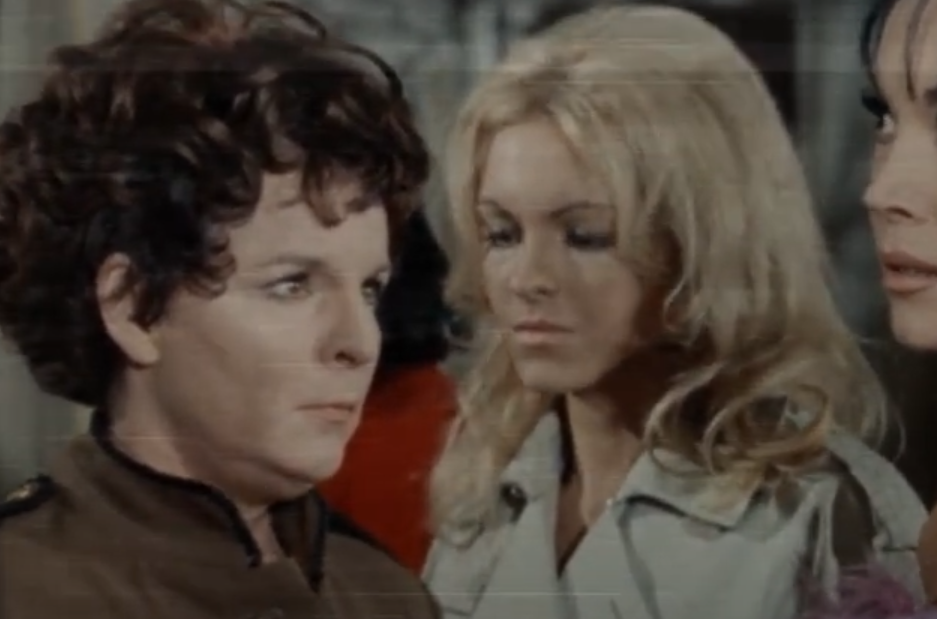 Corona Filmproduktion, 99 Women (1969)
Corona Filmproduktion, 99 Women (1969)
16. She Liked The Occasional Drink
McCambridge had grown up in a family that enjoyed a drink here and there. She followed in that tradition comfortably herself. But as difficulties emerged in her life, things took a dark turn. She was beginning to drink a little bit more often. It was a problem that would crop up again as time went on.
But as McCambridge received news of an exciting career opportunity, it seemed like maybe things weren’t so bad after all.
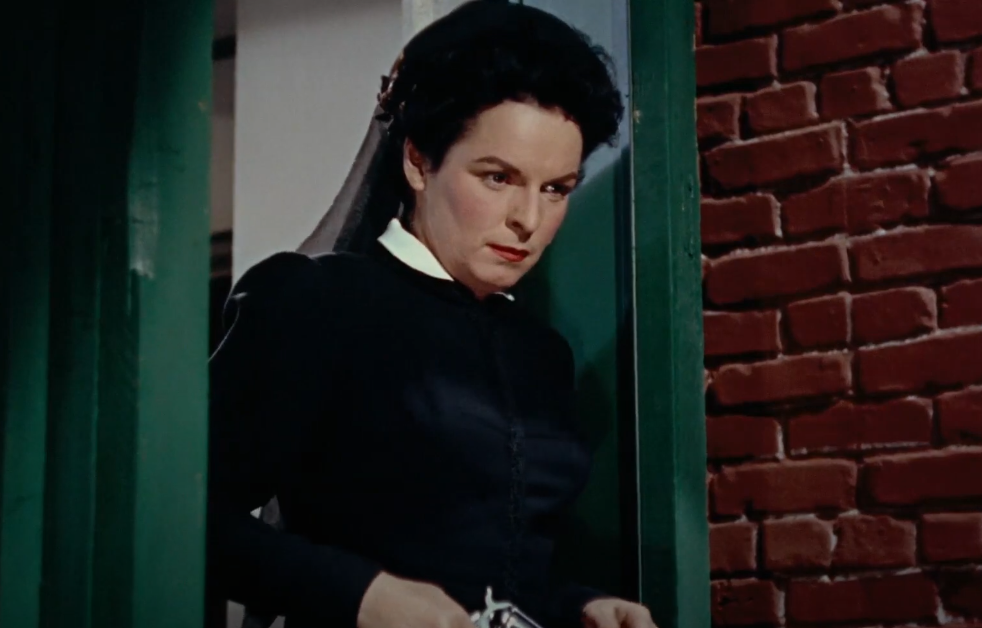 Republic Pictures, Johnny Guitar (1954)
Republic Pictures, Johnny Guitar (1954)
17. She Had Enough
McCambridge went to audition for the upcoming film production All the King’s Men (1949). The audition process was a mess, complete with a mob of hopeful candidates being shepherded in and out of the office. As the day dragged on, McCambridge lost her patience—she burst into the director’s office.
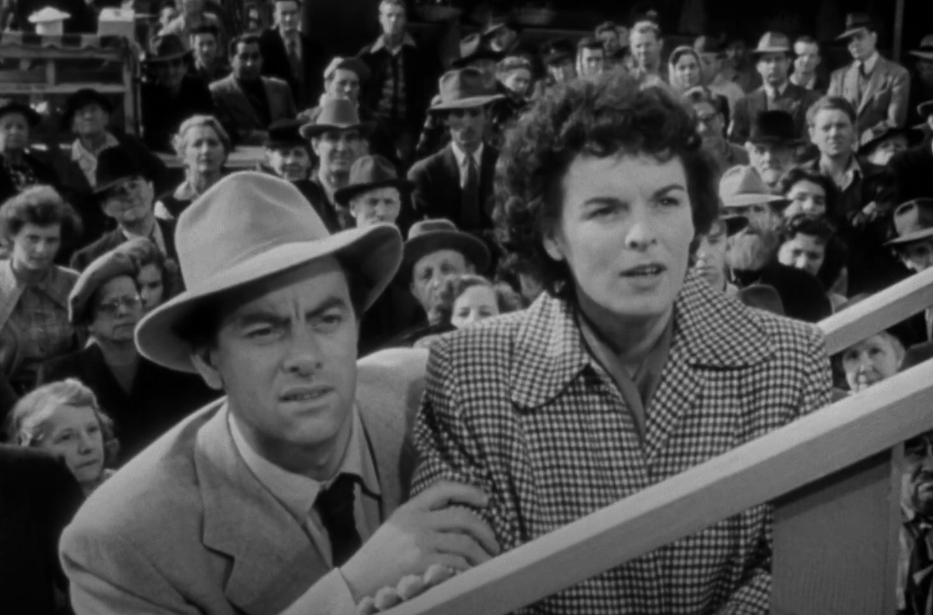 Columbia, All the King's Men (1949)
Columbia, All the King's Men (1949)
18. She Was Just What They Were Looking For
Perhaps no longer caring if she got the role or not, Mercedes McCambridge barged into director Robert Rossen’s office and ripped into him for his team’s poor treatment of the actresses. Rossen’s reaction was surprising. He realized that this kind of combativeness was exactly what the part needed! He signed McCambridge for the role as Sadie Burke, the tough political operative with a troubled past.
The role was made for her, but the success it brought surprised even McCambridge.
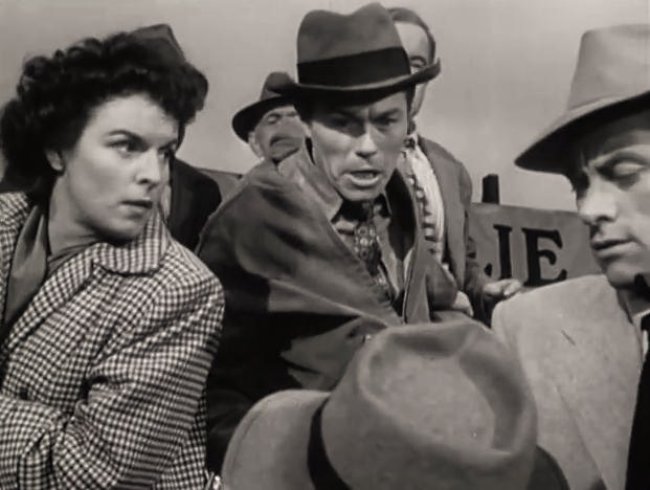 Columbia Pictures, Wikimedia Commons
Columbia Pictures, Wikimedia Commons
19. It Took Her Straight To The Top
Already a highly respected voice actress, Mercedes McCambridge never doubted her ability to succeed in film. But even she was surprised when Ray Milland announced her as winner of the Oscar for Best Supporting Actress. In a career that would be remembered for her tough uncompromising roles, her brief but emotional acceptance speech gave a glimpse of her vulnerable side.
Though she didn’t name names, McCambridge knew exactly who to thank for her success.
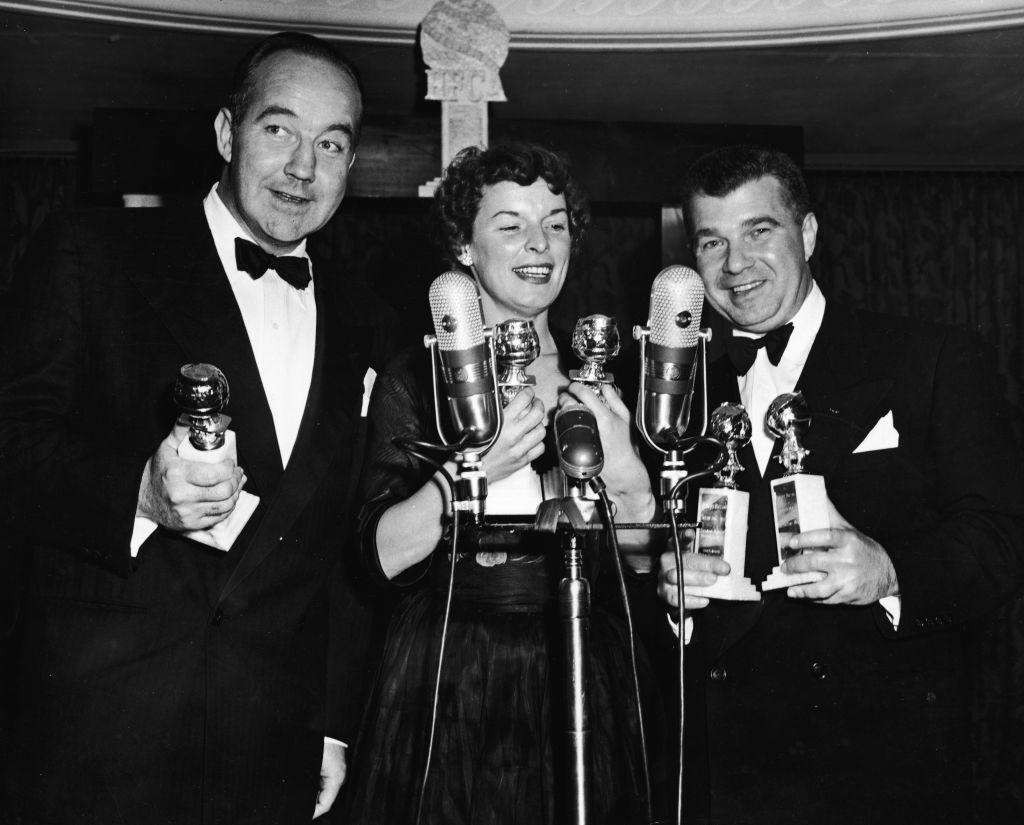 Columbia TriStar, Getty Images
Columbia TriStar, Getty Images
20. She Thanked Her Early Mentor
McCambridge had kept in touch with Sister Mary Oliver, whose teaching had been so key to her progress as a performer. McCambridge sent the Oscar statue to Oliver, who displayed the award at a local theater. It was a great tribute to the sister, who McCambridge called the biggest influence on her life. McCambridge’s spirits were lifted in another way as well.
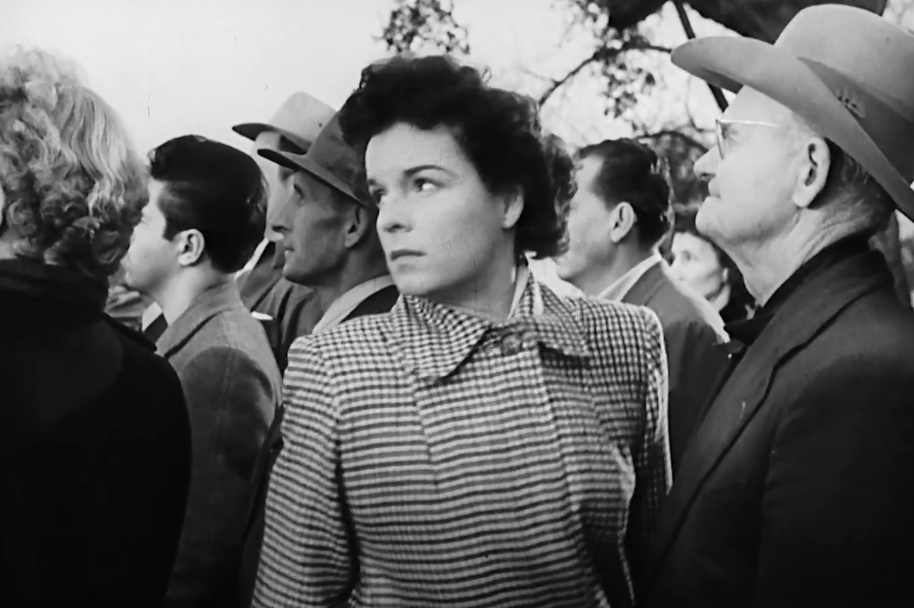 Columbia, All the King's Men (1949)
Columbia, All the King's Men (1949)
21. She Found Love Again
McCambridge had met Canadian radio and TV producer Fletcher Markle while doing voice work for radio shows. The two hit it off, marrying in 1950. In the early years of their marriage, her son John made a decision that seemed to cement the family together even more.
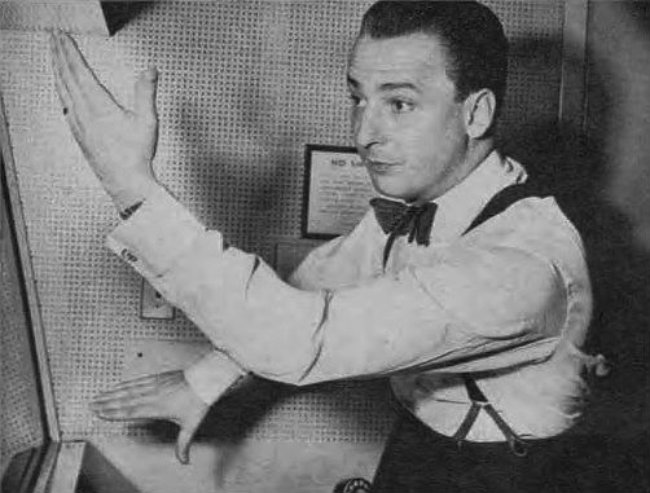 Dell Publications, Wikimedia Commons
Dell Publications, Wikimedia Commons
22. He Got A New Name
Fletcher Markle legally adopted McCambridge’s son John. For his part John dropped the Fifield name and changed his name to Markle. John would retain the Markle surname for the rest of his life. With a happy new family and a major career breakthrough, optimism reigned for McCambridge. But the hope turned out to be short-lived.
23. She Suffered A Tragedy
Through this period McCambridge continued with her voice acting work. While pregnant in 1951, she played a starring role in the ABC radio series Defense Attorney. With all the episodes pre-recorded well in advance of when the baby was due, everything seemed to be in order. Sadly, that’s when tragedy struck.
McCambridge’s baby was stillborn. Grief-stricken, she began to drink more frequently. And there was adversity in other areas as well.
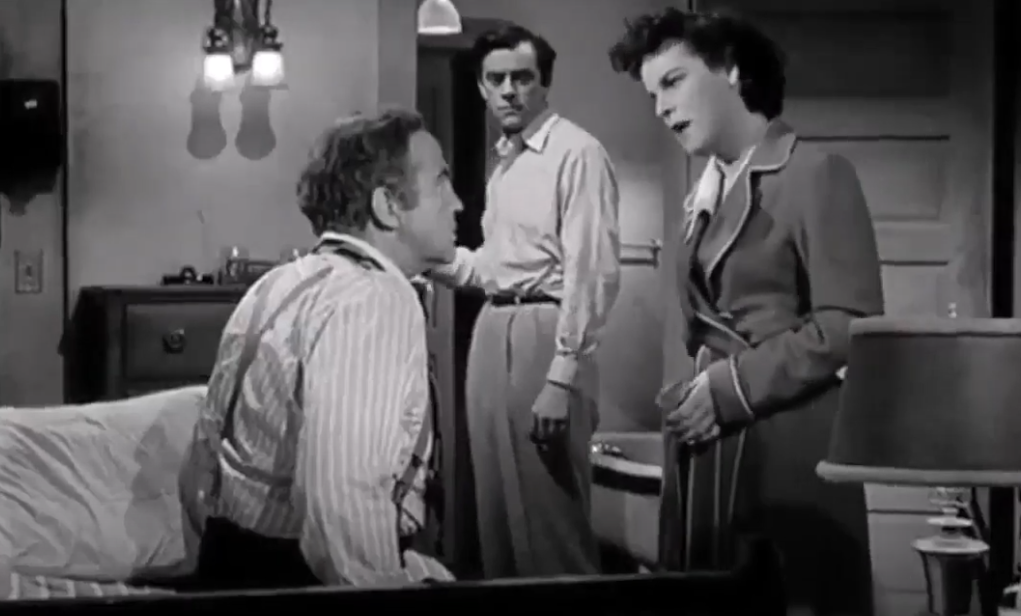 Columbia, All the King's Men (1949)
Columbia, All the King's Men (1949)
24. She Set A High Bar
Though McCambridge’s success in All the King’s Men had been beyond expectations, it was difficult to follow up on. After playing in a few lackluster films in 1951, she didn’t secure another major role until 1954 in the western Johnny Guitar. By now McCambridge’s reputation preceded her.
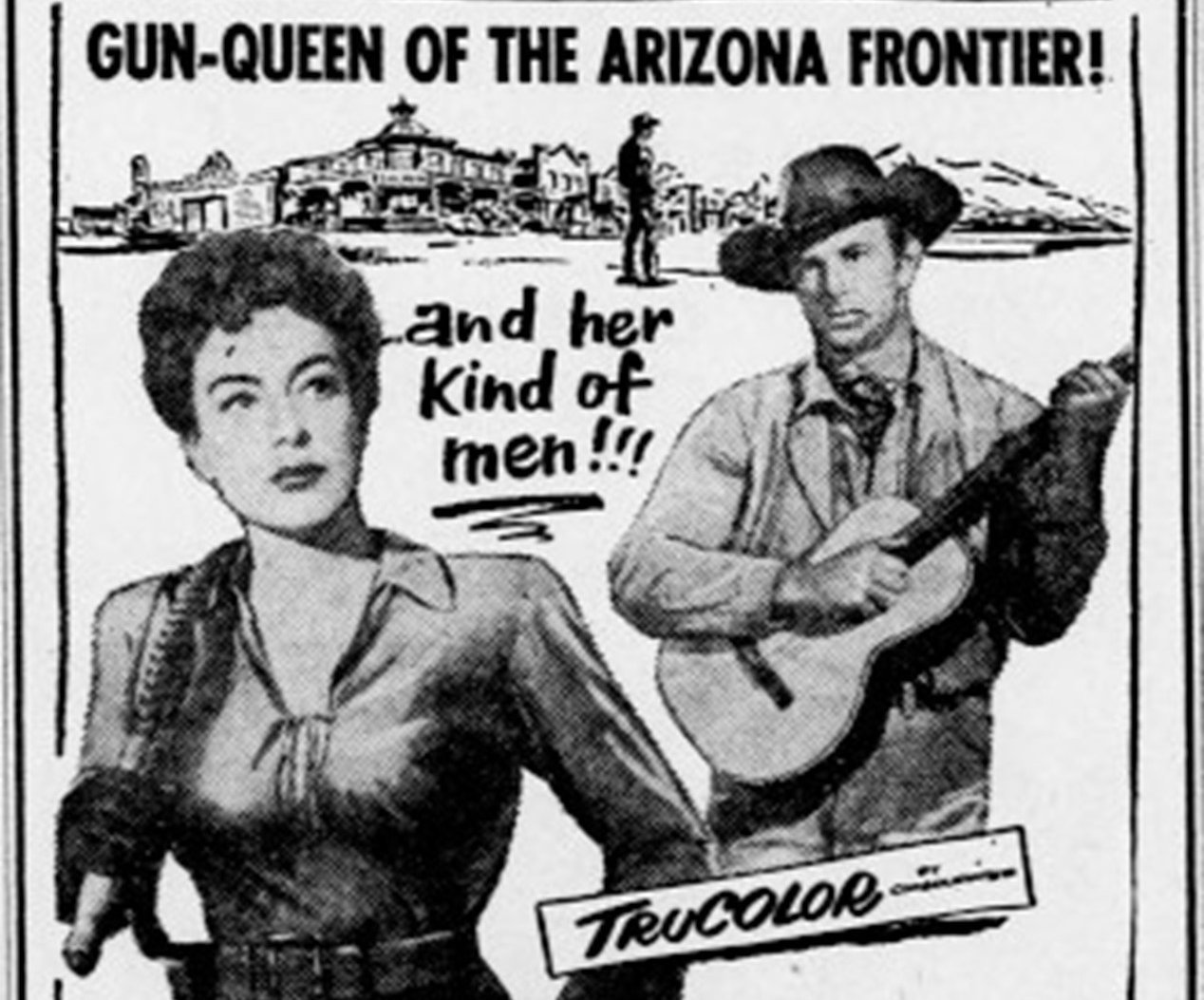 Republic Pictures, Wikimedia Commons
Republic Pictures, Wikimedia Commons
25. She Had A Reputation
By this time in her career, McCambridge had acquired a reputation for being difficult to get along with. McCambridge had never gotten by on her looks, but was the product of years of rigorous training and had mastered countless roles; she didn’t suffer fools gladly, nor was she shy about voicing her opinion.
But now McCambridge ran into someone just as headstrong as she was.
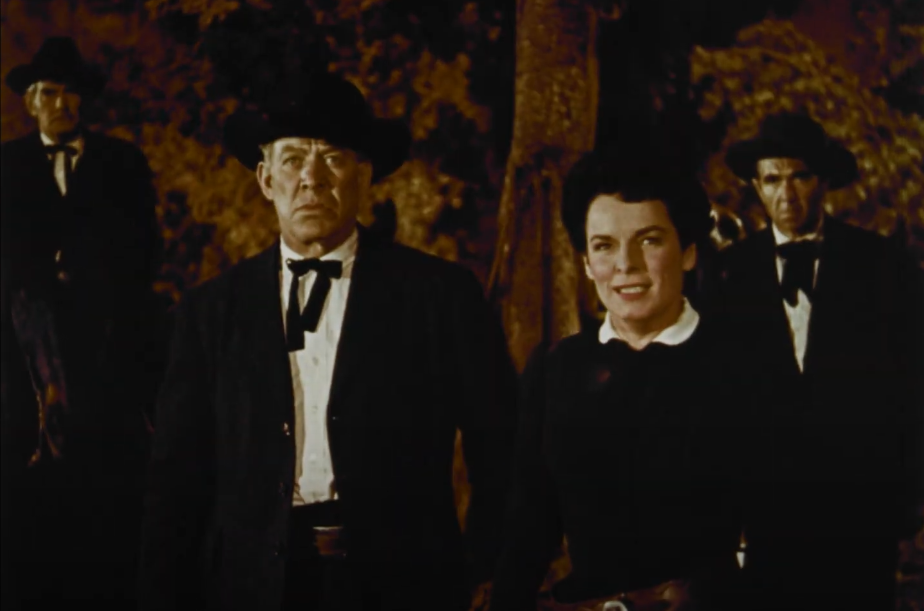 Republic Pictures, Johnny Guitar (1954)
Republic Pictures, Johnny Guitar (1954)
26. They Wasted No Time
Joan Crawford, long an established star, was playing the role of McCambridge’s on-screen rival in Johnny Guitar. The fact that Crawford had dated McCambridge’s husband years earlier immediately set McCambridge on edge. Meanwhile, Crawford was rankled that director Nicholas Ray was paying too much attention to McCambridge and her part in the film.
Feeling that the spite between the two was great for the production, Ray did little to defuse the escalating tension.
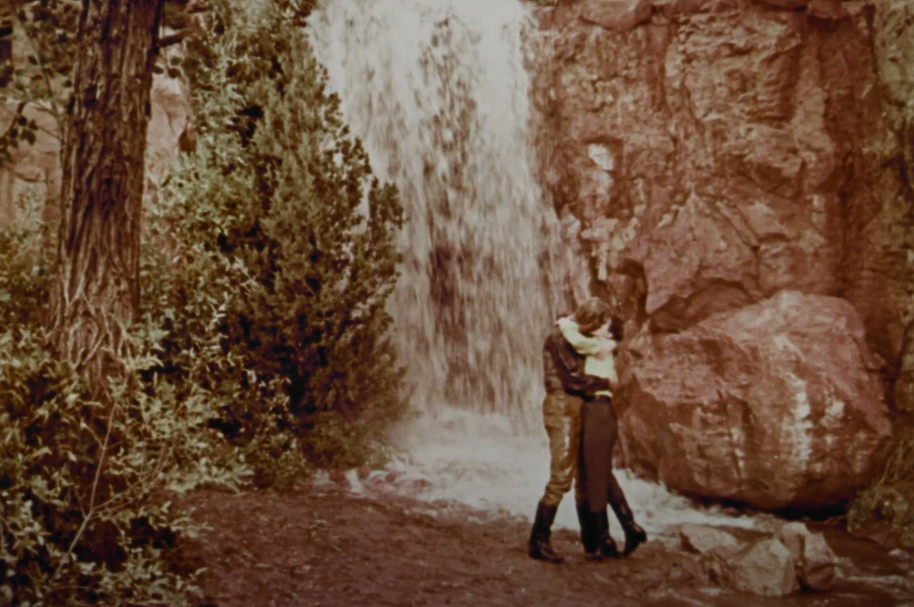 Republic Pictures, Johnny Guitar (1954)
Republic Pictures, Johnny Guitar (1954)
27. She Needed A New Wardrobe
It didn’t take long until the situation finally boiled over in the most spectacular way. Crawford stole all McCambridge’s clothes, cut them up, and flung them along the side of a nearby highway. Crawford added to her drunken rampage by demanding major changes to the script.
Instead of the two male co-stars squaring off in the climactic scene, Crawford and McCambridge’s characters would take center stage for the finale. That suited McCambridge fine.
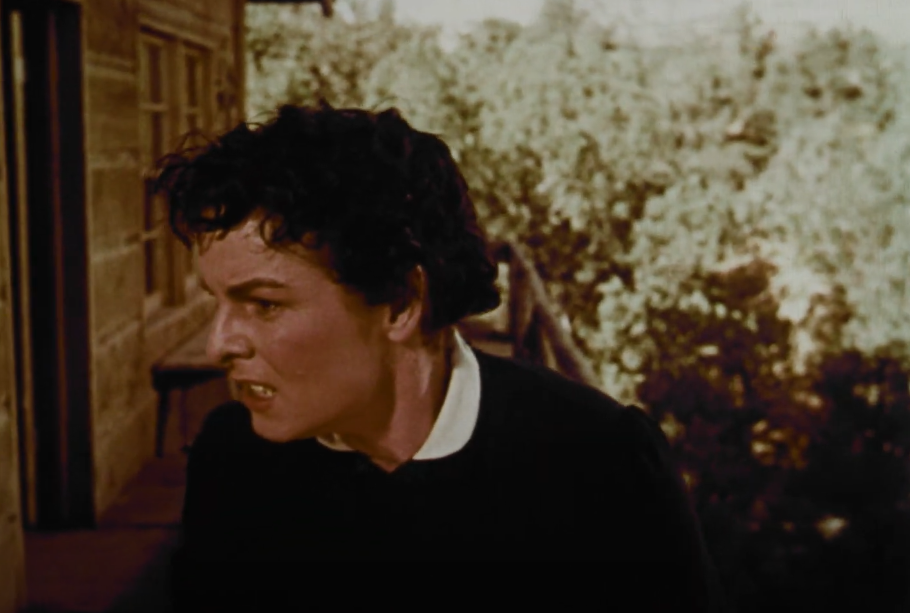 Republic Pictures, Johnny Guitar (1954)
Republic Pictures, Johnny Guitar (1954)
28. She Had No Trouble Playing The Part
The final sequence of Johnny Guitar featured some of McCambridge’s best-known acting, as she attempts to carry out some frontier justice on Crawford. The hatred between the two actresses only made it look more authentic. Now recognized as an underrated classic, Johnny Guitar secured McCambridge further Hollywood work—at least for a little while.
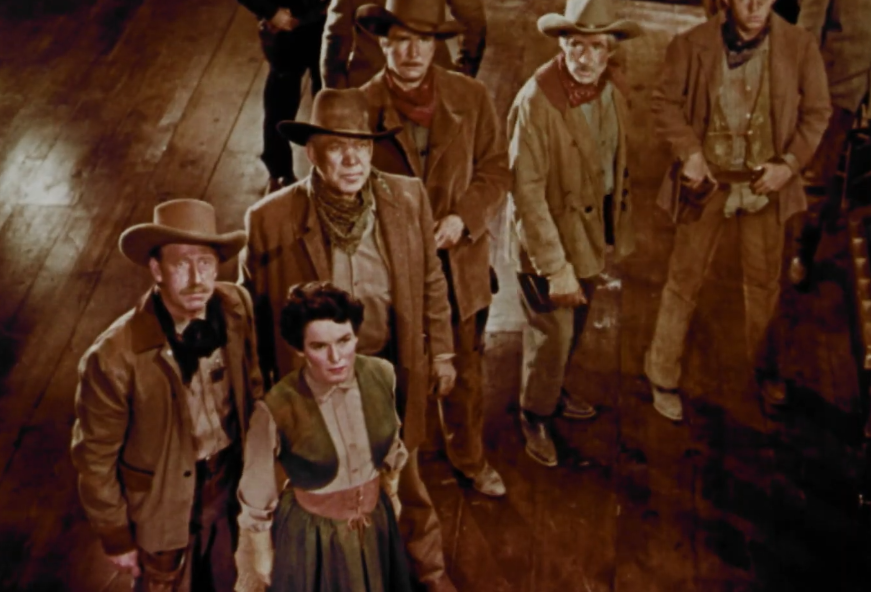 Republic Pictures, Johnny Guitar (1954)
Republic Pictures, Johnny Guitar (1954)
29. She Was Nominated Again
McCambridge landed supporting roles in some noteworthy films through the late 50s including the George Stevens-directed classic Giant (1956), for which she received a Best Supporting Actress nomination. McCambridge also appeared in an episode of the TV western Wagon Train, an early indicator of the turn her career would eventually take. McCambridge was also active with other pursuits off set.
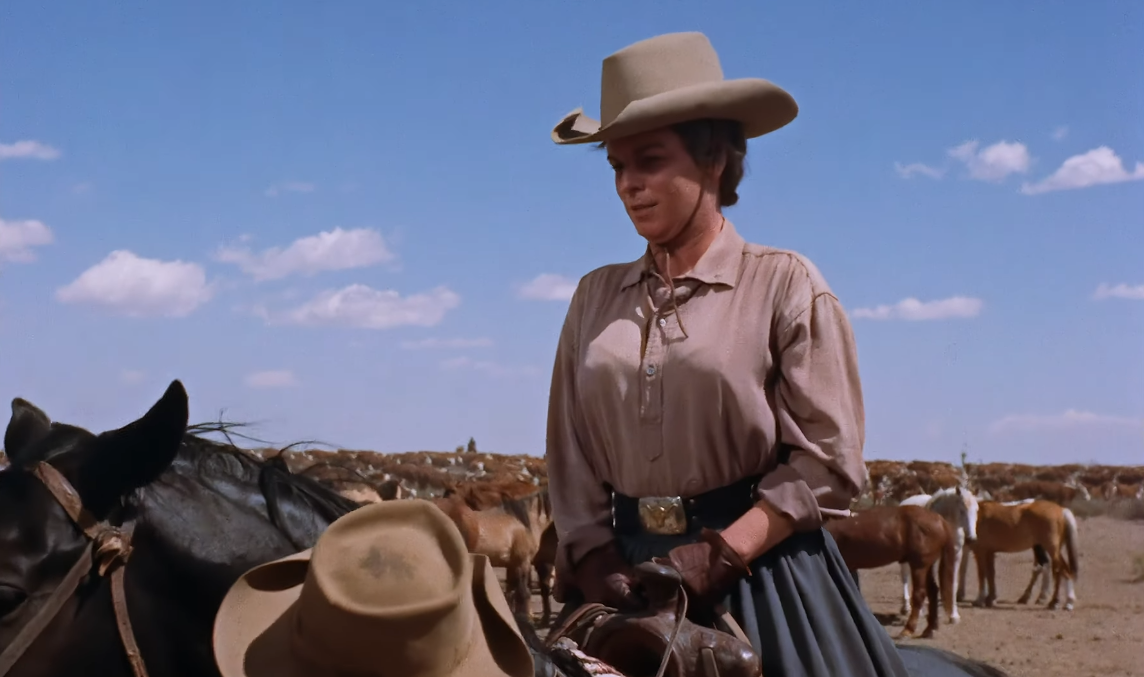 George Stevens Productions, Giant (1956)
George Stevens Productions, Giant (1956)
30. She Campaigned For Him
Mercedes McCambridge was a solid liberal and took an active interest in Democratic Party politics. She developed a close personal friendship with two-time Democratic presidential candidate Adlai Stevenson. Though the relationship between the two was strictly platonic, things weren’t going well at home.
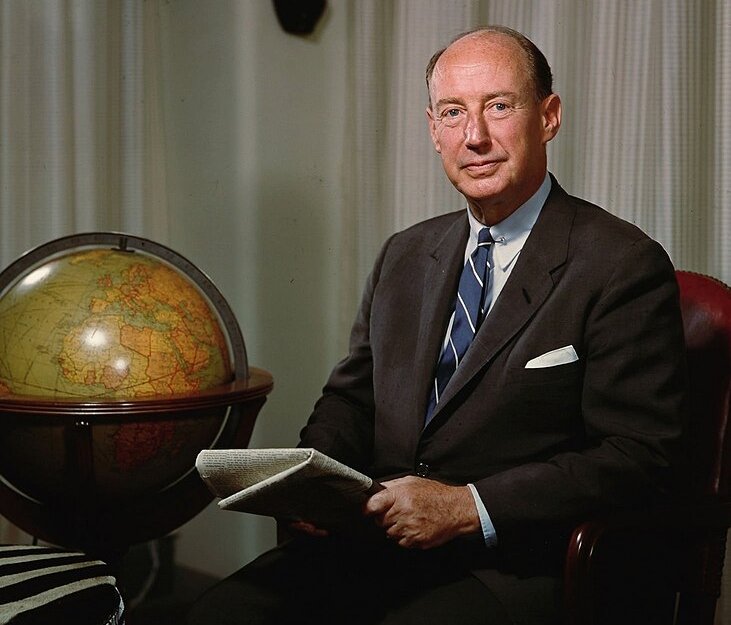 Louis Fabian Bachrach, Jr., Wikimedia Commons
Louis Fabian Bachrach, Jr., Wikimedia Commons
31. They Were Through
By the early 60s, McCambridge’s marriage with Fletcher Markle had taken a nosedive. McCambridge’s drinking had already increased in the years leading up to the couple’s 1962 split, and accelerated in the years following. And that wasn’t the only source of worry for McCambridge.
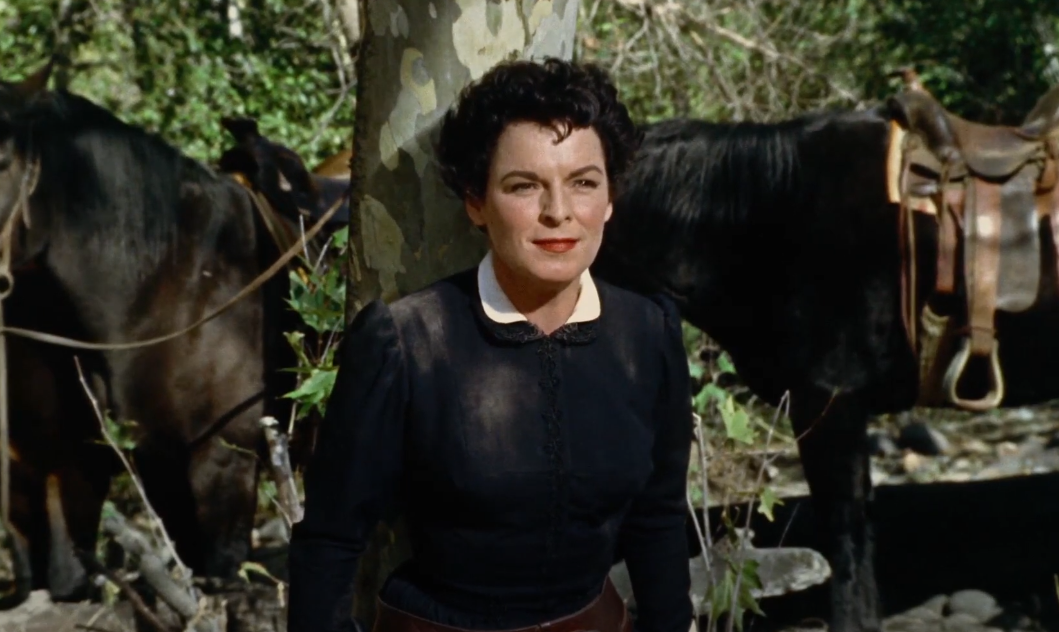 Republic Pictures, Johnny Guitar (1954)
Republic Pictures, Johnny Guitar (1954)
32. Her Son Was Badly Banged Up
When McCambridge’s son John Markle was in his early 20s, he was the victim of a frightening attack. He was badly beaten by a group of assailants, suffering a fractured skull in the process. Markle received another skull fracture a short time later in a serious car crash.
This time, doctors warned McCambridge that John had little chance to survive. The news sent McCambridge down into the vortex.
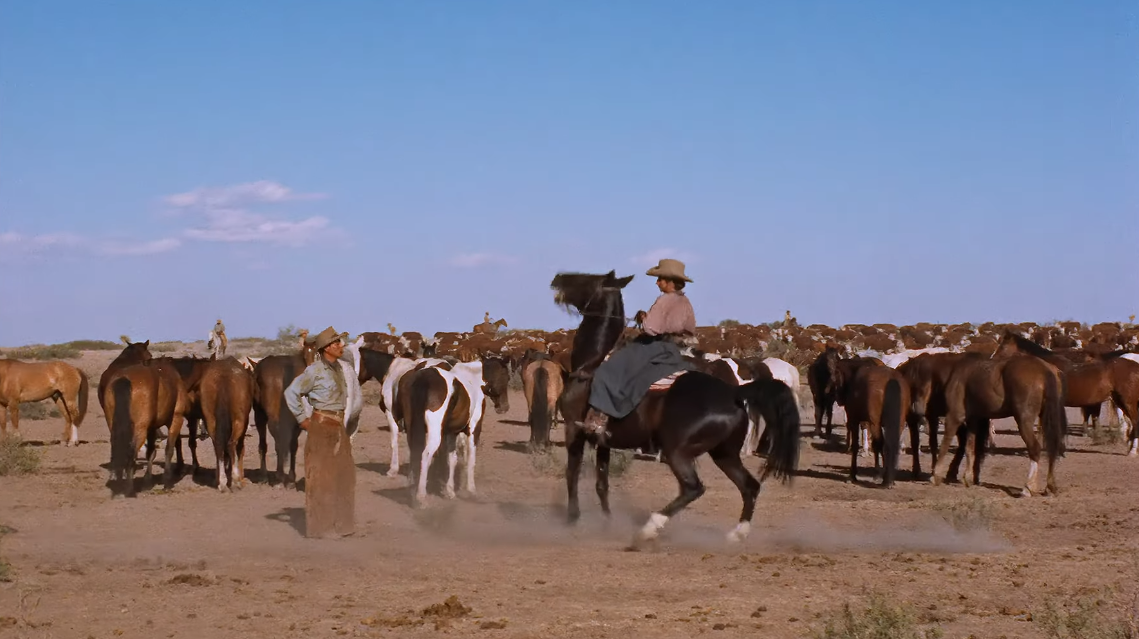 George Stevens Productions, Giant (1956)
George Stevens Productions, Giant (1956)
33. She Went Into A Tailspin
With a second failed marriage and the sense that her career was fading, the news that John might not make it sent Mercedes McCambridge on her biggest bender yet. She didn’t come to her senses again until she was in hospital. Along with the news that John had miraculously improved, her doctor urged McCambridge to join a rehab program. McCambridge saw a chance to turn a corner.
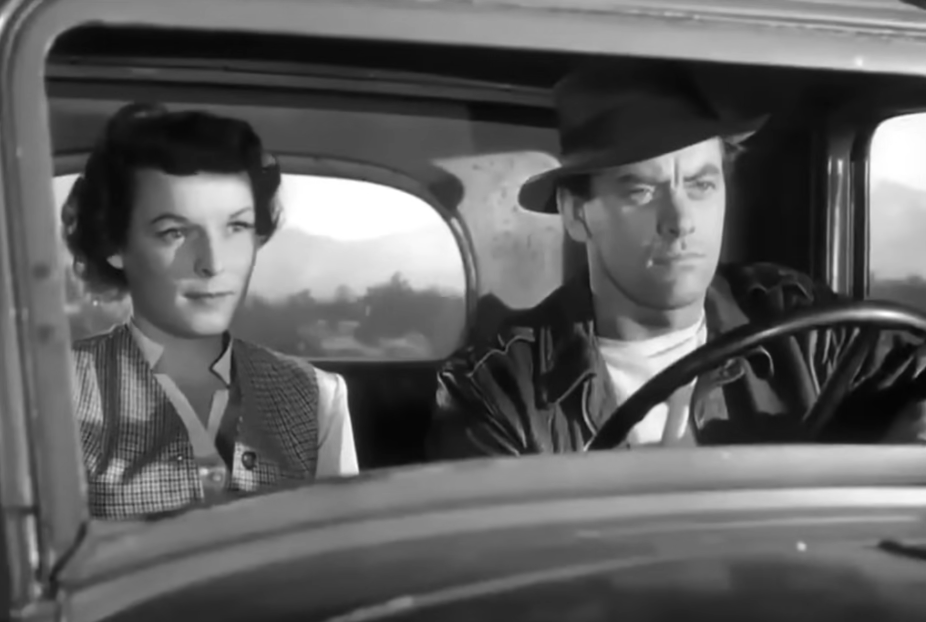 Gloria Productions Inc., The Scarf (1951)
Gloria Productions Inc., The Scarf (1951)
34. She Got Back On Her Feet
Not being one to stay down for long, McCambridge embarked on a treatment program for her alcoholism under the guidance of Dr Stanley Gitlow. She also took on one of the toughest roles of her career for the first Broadway run of Who’s Afraid of Virginia Woolf? (1962), taking over for Uta Hagen in early 1964. Though the reviews were positive, struggles continued.
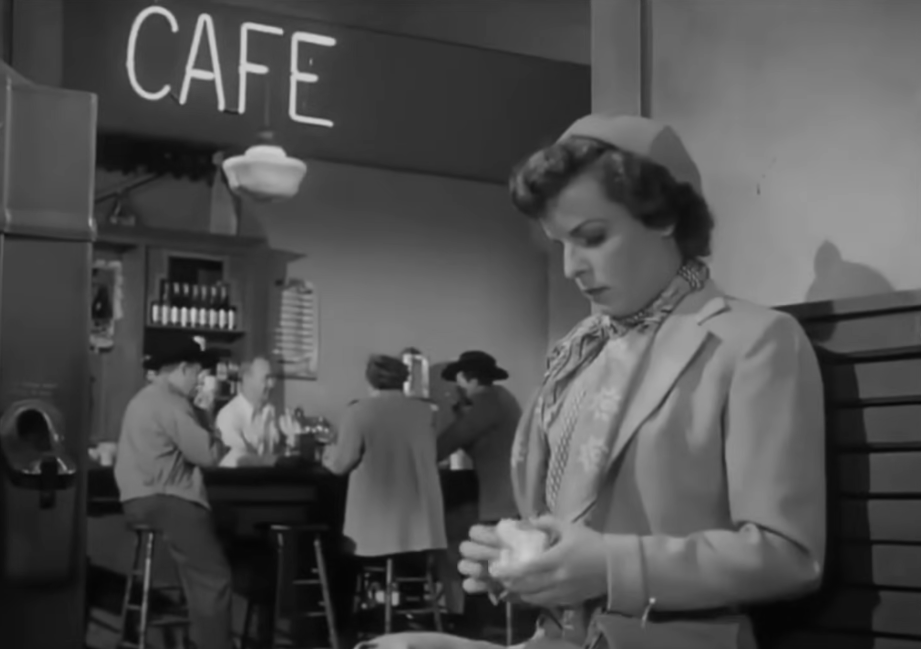 Gloria Productions Inc., The Scarf (1951)
Gloria Productions Inc., The Scarf (1951)
35. They Passed On Her
Mercedes McCambridge was up for one of the lead roles in the new prime time western series The Big Valley. But McCambridge’s reputation for giving 100% to her roles began to be overshadowed by her struggles with substances. The producers chose Barbara Stanwyck for the part instead.
But McCambridge would return to the public eye in a more important way.
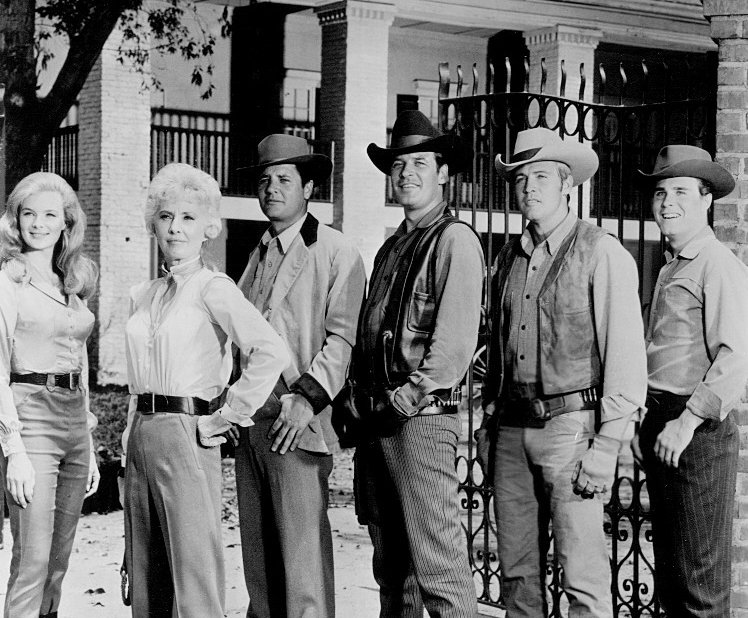 McFadden, Strauss, Eddy & Irwin-public relations, Wikimedia Commons
McFadden, Strauss, Eddy & Irwin-public relations, Wikimedia Commons
36. She Got An Unusual Request
Mercedes McCambridge got a phone call from Iowa Senator Harold Hughes, who was trying to coordinate a special government sub-committee on alcoholism and narcotics. Hughes lamented to McCambridge that no publicly prominent people would testify to the committee about their battles with alcoholism.
Encouraged by Hughes’ admission that he too was an alcoholic, McCambridge decided to take a bold step.
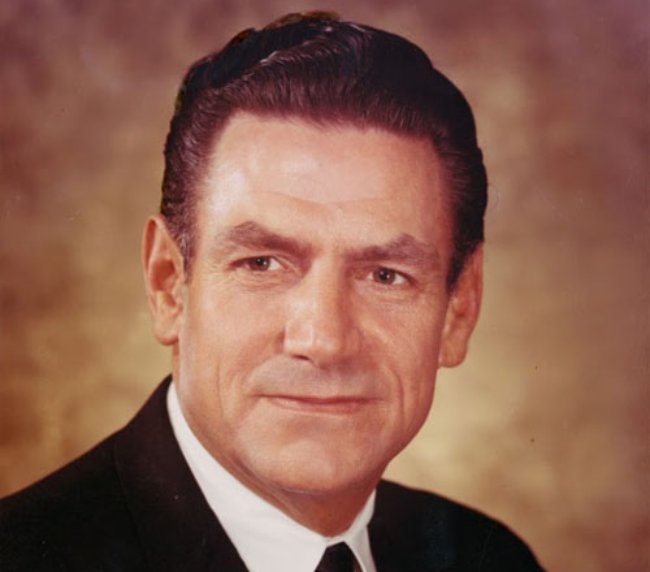 State of Iowa, Wikimedia Commons
State of Iowa, Wikimedia Commons
37. She Did A Brave Thing
By testifying to her problems with booze in front of a senate sub-committee, McCambridge knew the hit that her career might take. Sadly, she was proven right—and the consequences were devastating. She later estimated that she lost more than a million dollars in missed acting opportunities because of the stigma attached to her public admission.
McCambridge made a courageous choice by stepping forward and speaking out. Then she asked herself, why stop there?
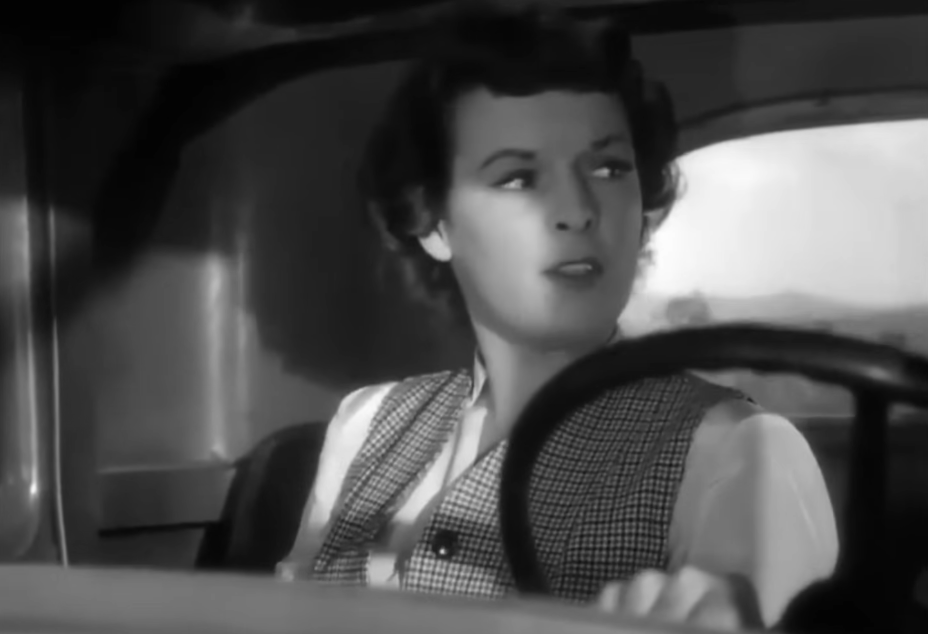 Gloria Productions Inc., The Scarf (1951)
Gloria Productions Inc., The Scarf (1951)
38. She Wanted To Help Others
Mercedes McCambridge decided to continue speaking out about the tragedy of alcoholism, and help others get sober. She served as chair of the National Council on Alcoholism, and became president of the Livengrin rehab center. McCambridge gave regular public talks that helped reduce the stigma around alcoholism. As she adapted to her new role, she suddenly took on the strangest role of her career.
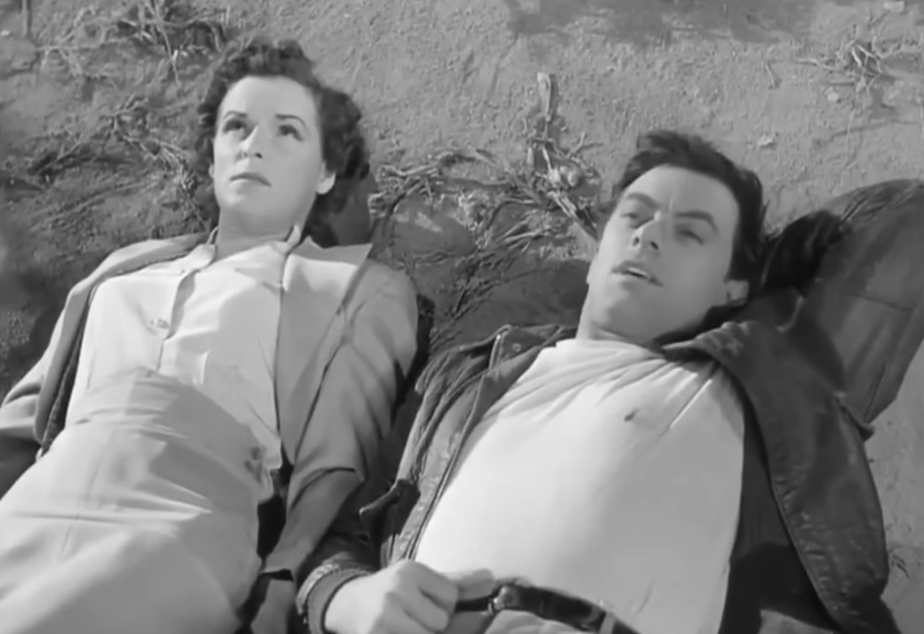 Gloria Productions Inc., The Scarf (1951)
Gloria Productions Inc., The Scarf (1951)
39. He Knew She Was The One
Director William Friedkin couldn’t find a suitable voice for the devil in his new film The Exorcist (1973). Linda Blair had performed admirably, but the voice was beyond the 14-year-old’s capabilities. Friedkin finally thought of McCambridge, whose voice he remembered from the radio serials back in the 40s. He knew she was the one—if McCambridge couldn’t do it, nobody could! McCambridge agreed to the role, and plunged into the new project.
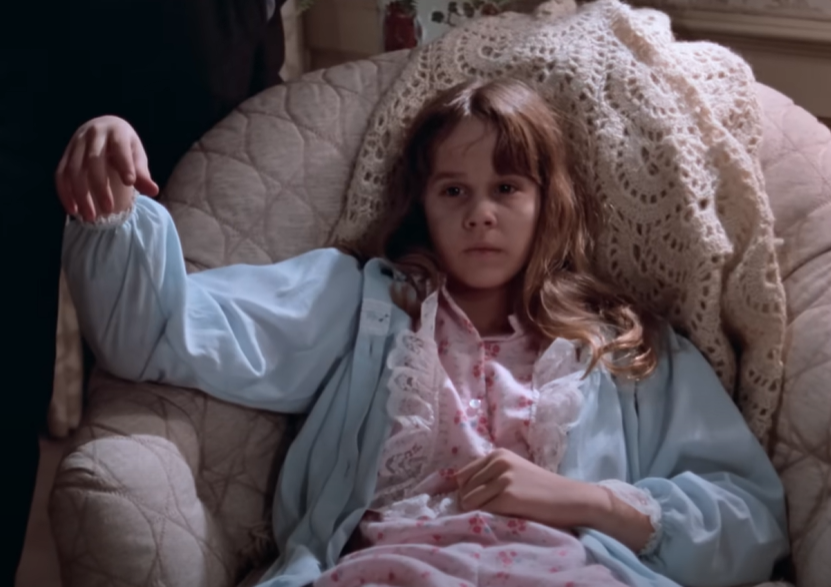 Warner Bros., The Exorcist (1973)
Warner Bros., The Exorcist (1973)
40. She Embraced Her Demons
Mercedes McCambridge understood that she would need to push her voice acting skills to the limit. A sufferer of chronic bronchitis, she already had a raspy voice. But for The Exorcist, she pushed it to an extreme. By chain smoking, drinking shots of straight whiskey, and downing raw eggs during her recording sessions, she made her voice sound far harsher.
McCambridge had done it: she’d created the voice of the devil. But though she’d solved Friedkin’s problem, she soon had a problem of her own with the director.
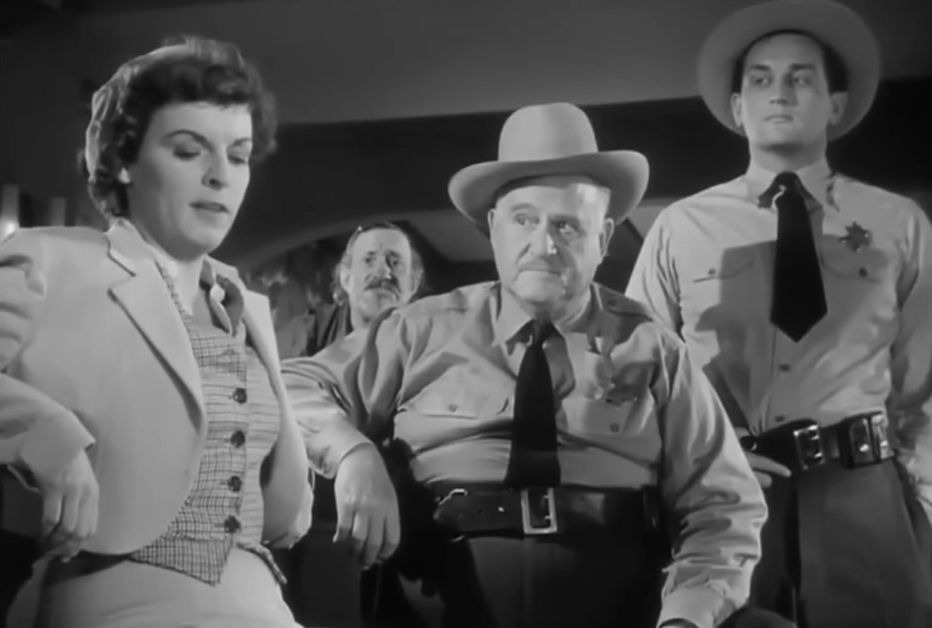 Gloria Productions Inc., The Scarf (1951)
Gloria Productions Inc., The Scarf (1951)
41. She Had To Fight For Credit
When The Exorcist came out in theaters, McCambridge quickly realized she’d been the victim of a stunning betrayal. The initial release of the film didn’t list McCambridge in the credits. Friedkin later insisted that she’d refused credit for the harrowing role. McCambridge countered that she’d poured her lifeblood into the project; why on earth wouldn’t she want credit?
After McCambridge promised to sue Warner Brothers, they quickly added her name to new prints of the film. Despite the dispute, McCambridge was still holding her own in her career.
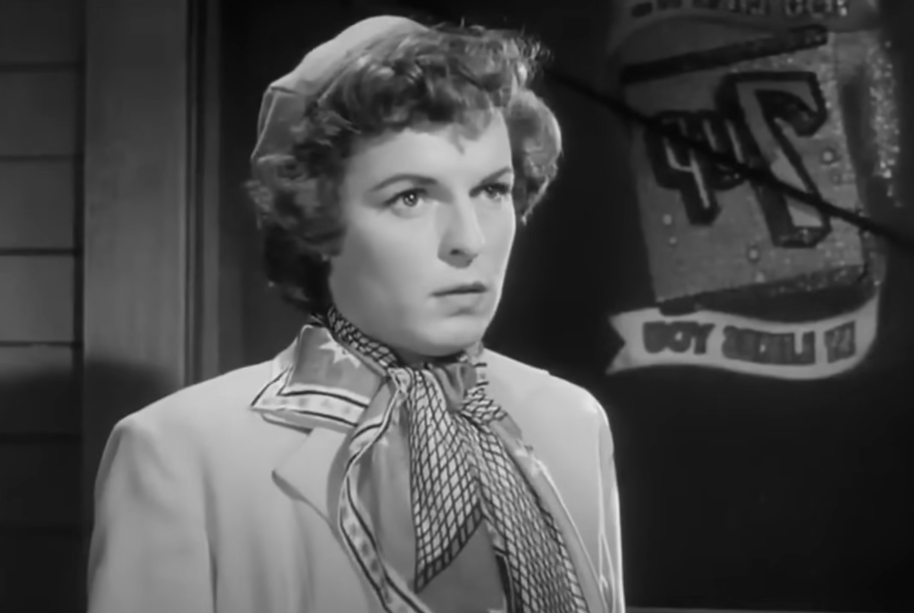 Gloria Productions Inc., The Scarf (1951)
Gloria Productions Inc., The Scarf (1951)
42. She Kept Working
McCambridge stayed active through the 70s into the 80s. Though she was nominated for a Tony Award in 1972 for her Broadway work, most of the projects were TV movies and guest spots. It was a step down from her days of being on set with Liz Taylor and James Dean, but McCambridge had never really lived for the glitz of Hollywood.
She was an actress, not a movie star. After years of sobriety, she thought her troubles were behind her. Sadly, she was wrong.
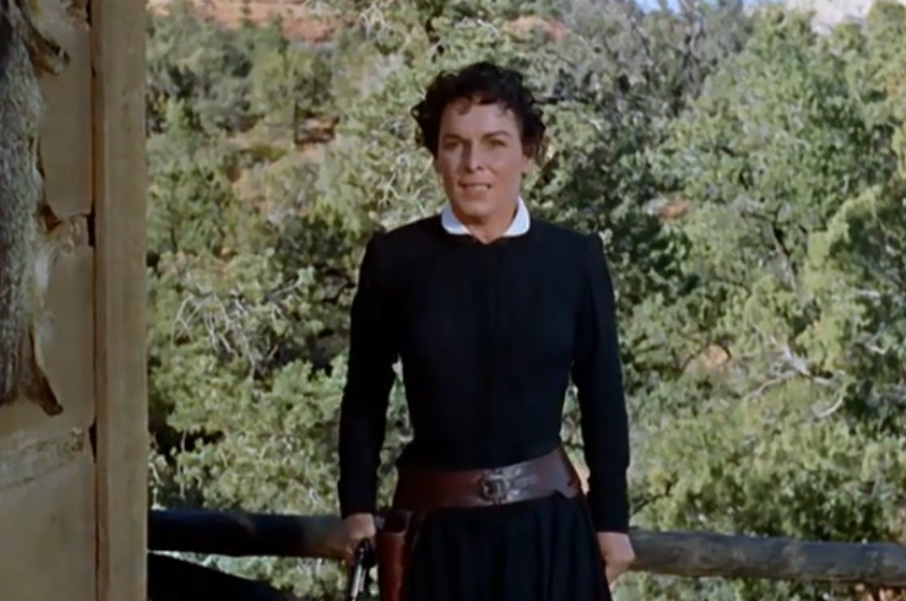 Republic Pictures, Johnny Guitar (1954)
Republic Pictures, Johnny Guitar (1954)
43. She Trusted Him
By the 80s, McCambridge’s son John Markle had gone from a PhD in economics to a lucrative career as a futures trader. Married with two daughters, Markle was successful in every way. McCambridge wanted to secure her financial future; who could she trust more than her own son to invest her money wisely?
So, she handed over her life savings. It was the worst choice she could’ve possibly made.
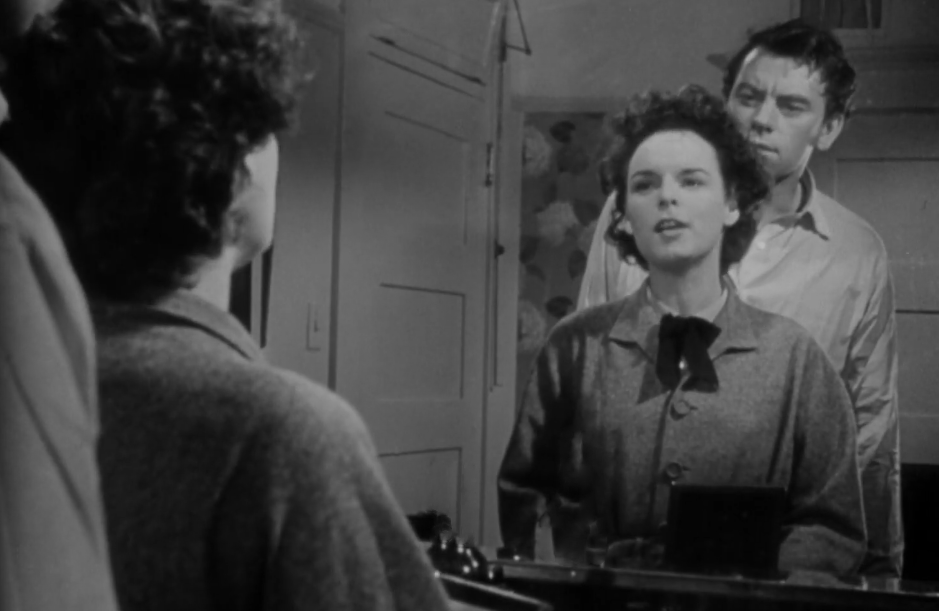 Columbia, All the King's Men (1949)
Columbia, All the King's Men (1949)
44. He Had Serious Problems
Despite his skills as a broker, Markle had gotten himself into some financial hot water. He began embezzling funds from his employer and parking the extra money in his mother’s—McCambridge’s—investment account. It was only a matter of time before Markle’s boss discovered his wrongdoing. But McCambridge had no idea what was going on.
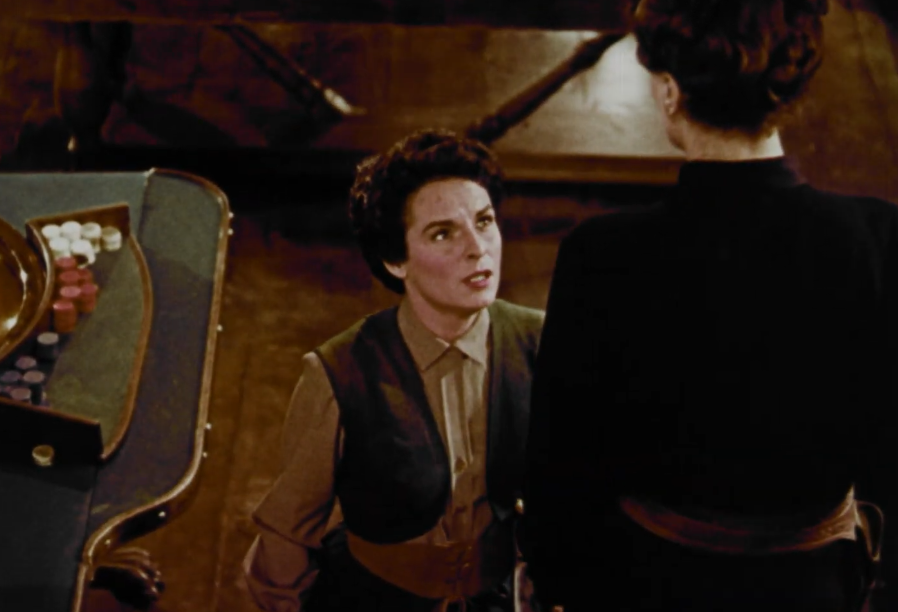 Republic Pictures, Johnny Guitar (1954)
Republic Pictures, Johnny Guitar (1954)
45. She Knew Her Son (She Thought)
Mercedes McCambridge knew her son had an unpredictable streak, but Markle was raking in great returns on her investment. Under the circumstances, she was willing to write off his increasingly erratic behavior as no more than the personality quirks of an eccentric financial genius. But suddenly, Markle came to McCambridge with a shocking admission.
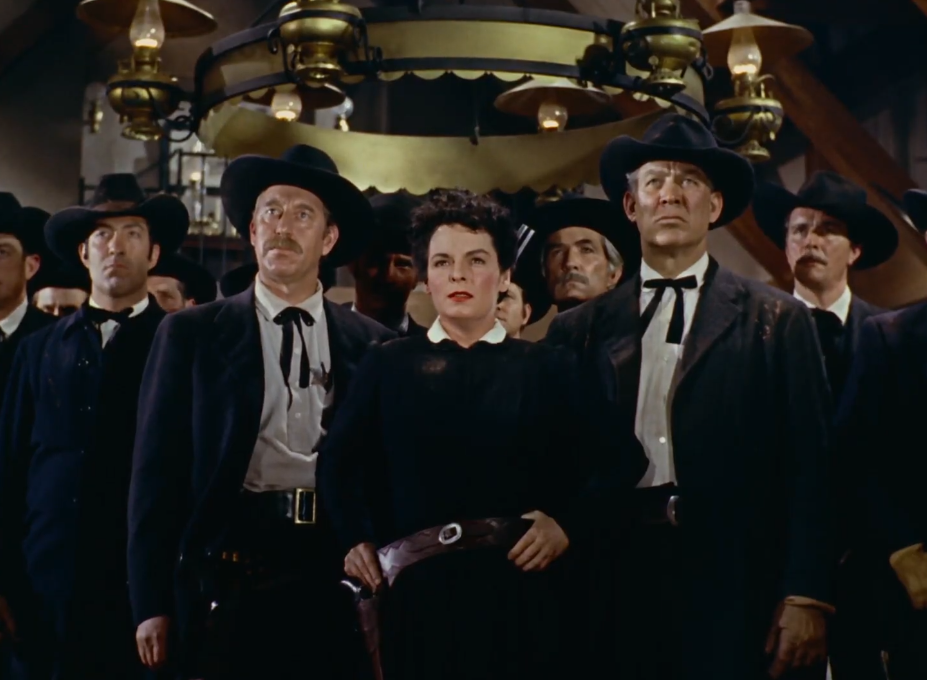 Republic Pictures, Johnny Guitar (1954)
Republic Pictures, Johnny Guitar (1954)
46. She Put Her Foot Down
Markle finally told McCambridge he had been fired and that his company was demanding their swindled money back from her account. Understandably furious, McCambridge flatly refused. She’d had no idea what Markle had been up to—why should she be ruined because of his irresponsible actions? However, she had no idea of the depths that Markle could sink to.
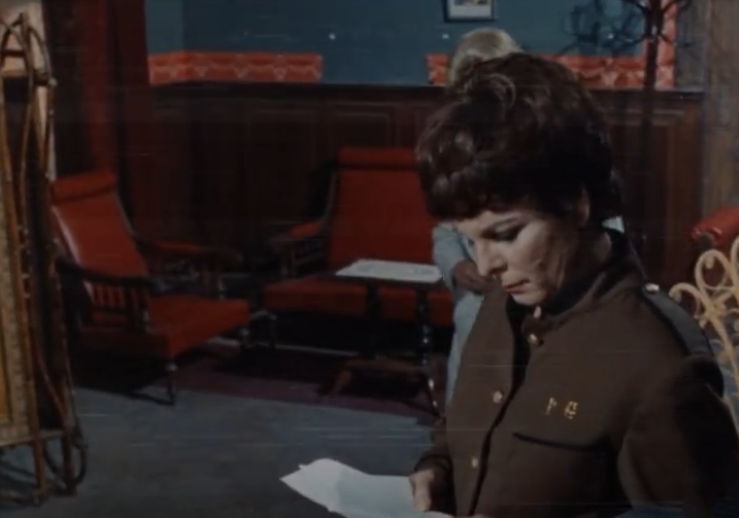 Corona Filmproduktion, 99 Women (1969)
Corona Filmproduktion, 99 Women (1969)
47. He Did The Unspeakable
Now facing financial ruin and public disgrace, Markle did the unthinkable. Police discovered his body, and those of his wife and two daughters the following day. Markle the fraudster had slain his family before taking his own life. The letter Markle left behind made the tragedy worse.
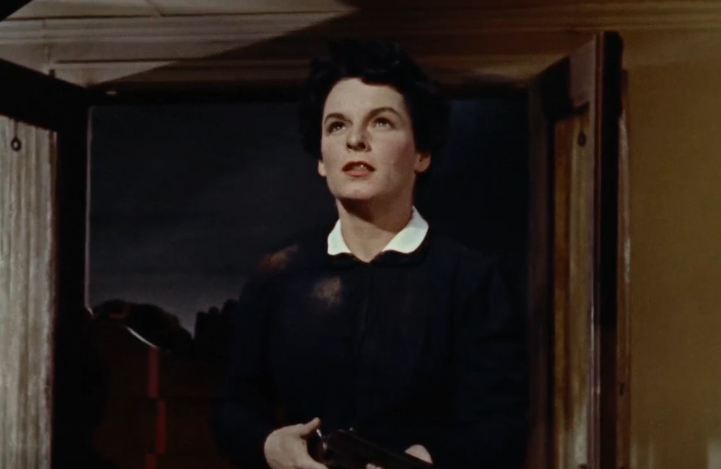 Republic Pictures, Johnny Guitar (1954)
Republic Pictures, Johnny Guitar (1954)
48. He Put It All On Her
McCambridge petitioned the court to keep the letter from public release, but without success. Its contents were absolutely shocking. Instead of apologizing or admitting his mistakes, Markle’s letter was a 13-page rant about what a lousy mother McCambridge had been to him. He blamed his actions on McCambridge, and for spite had bequeathed all his money to his mother.
To make matters worse, Markle’s company was still demanding their money back.
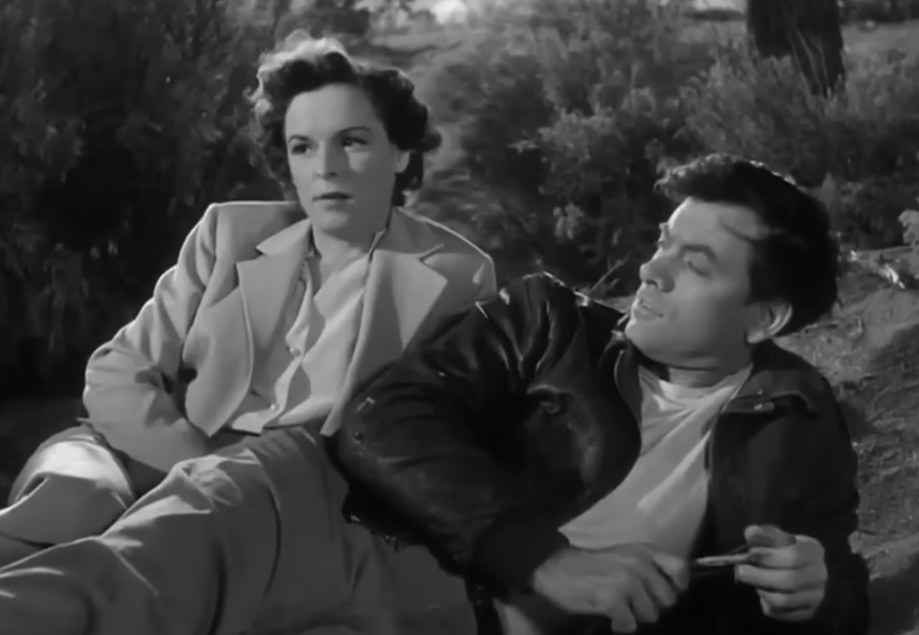 Gloria Productions Inc., The Scarf (1951)
Gloria Productions Inc., The Scarf (1951)
49. She Went On Living Her Life
Though she lost money in the court battles that unfolded in the tragedy’s aftermath, Mercedes McCambridge was able to retire from acting. Her last work was an appearance on Cagney & Lacey in 1988. She continued to share her story of recovery from addiction as an inspiration to others.
McCambridge lived in La Jolla, California until March 2, 2004 when she passed from heart failure. Her ashes were scattered over the Pacific near San Diego.
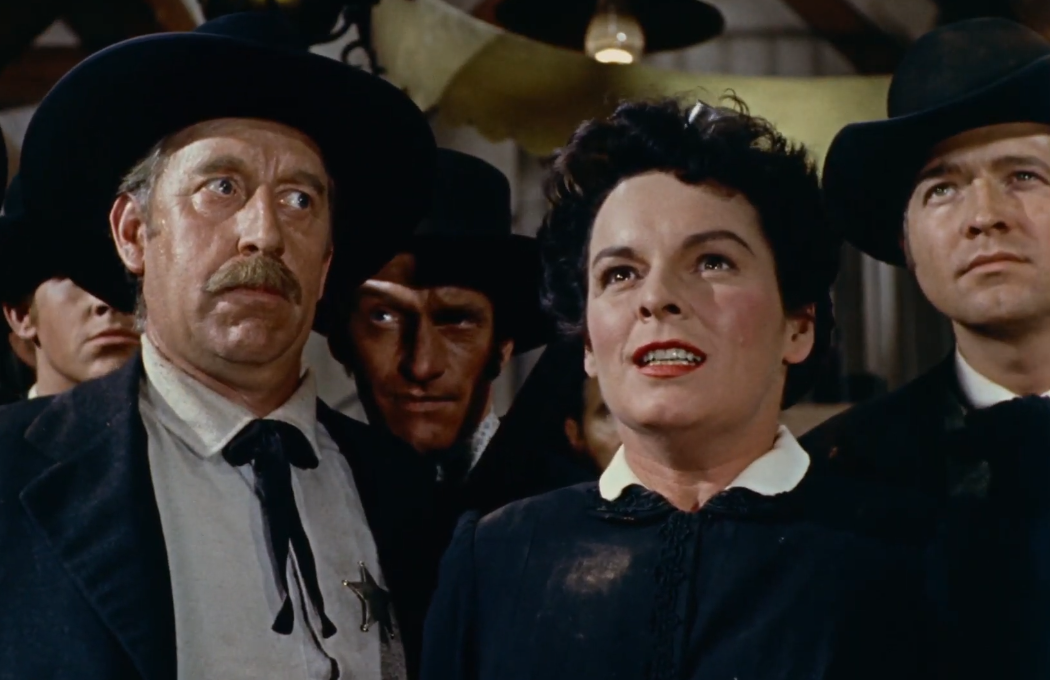 Republic Pictures, Johnny Guitar (1954)
Republic Pictures, Johnny Guitar (1954)
50. Her Legacy Was Secure
Orson Welles called Mercedes McCambridge “the world’s greatest living voice actor”. Her film and stage acting was just as impressive. Often typecast in the role of tough, unattractive, or unpleasant women, McCambridge injected her own intense personality into her characters that are still remembered by moviegoers decades later.
It was McCambridge’s commitment that saved The Exorcist, and it was that same strength and determination that enabled McCambridge to exorcise her own personal demon of alcoholism. It took every ounce of that strength for her to get through a tragedy that no human being should ever have to endure.
You May Also Like
Resilient Facts About Ellen Burstyn, The Actor Who Worked With The Devil
Savage Facts About Barbara Baekeland, The Twisted Heiress
Heated Facts About Marlon Brando, Hollywood’s Tragic Rake
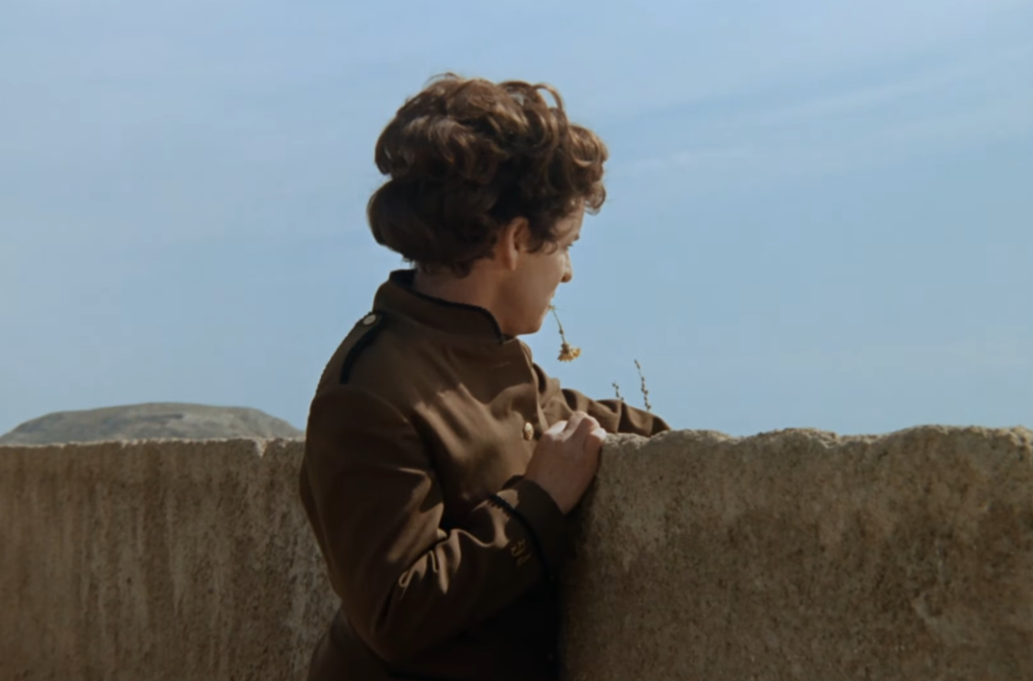 Corona Filmproduktion, 99 Women (1969)
Corona Filmproduktion, 99 Women (1969)
Sources: 1, 2, 3, 4, 5, 6, 7, 8, 9, 10, 11, 12, 13, 14, 15, 16, 17, 18, 19, 20, 21, 22, 23, 24, 25

